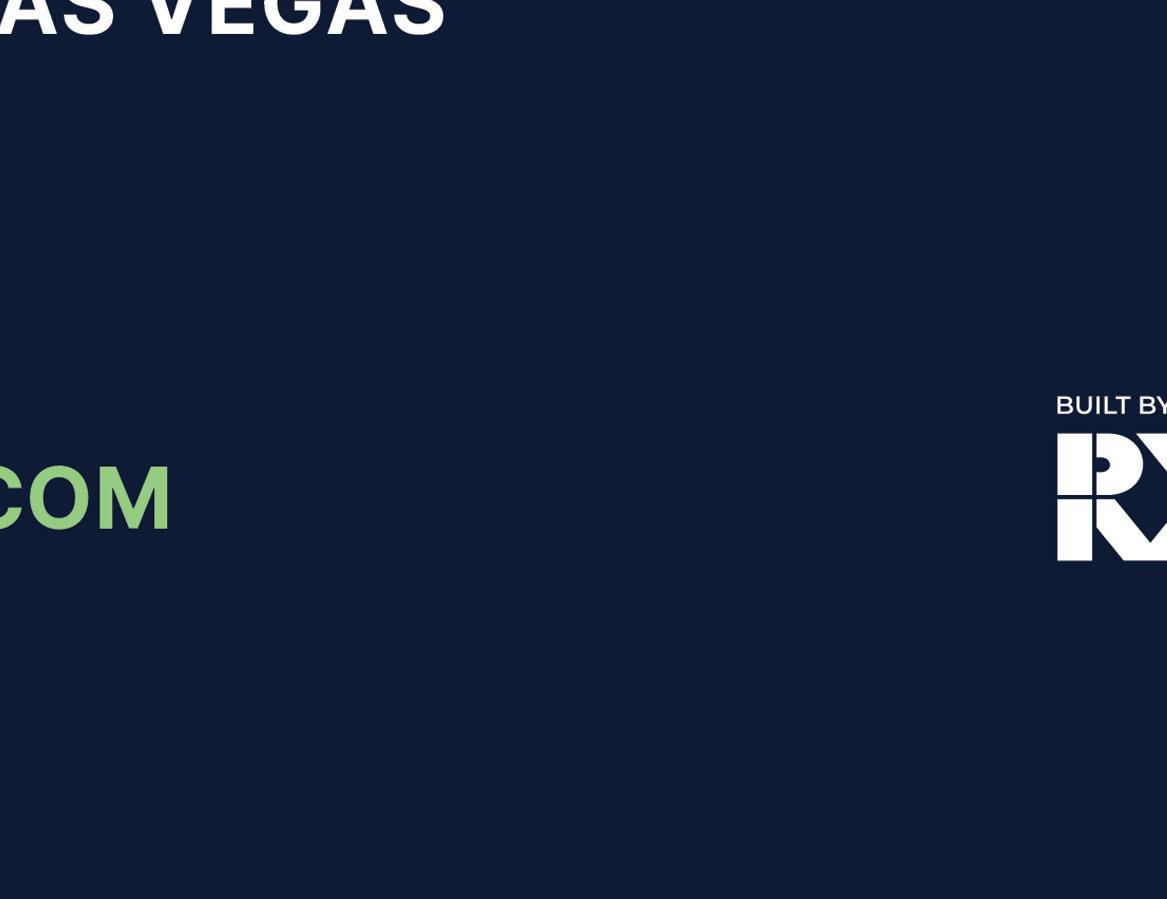WINNERS REVEALED: Reviewing the Global Gaming Awards Asia-Pacific
Jul/Aug 2025

FIFTEEN FROM 15:
In our celebratory issue, special guests look back...
Industry experts explore gamification’s present & future




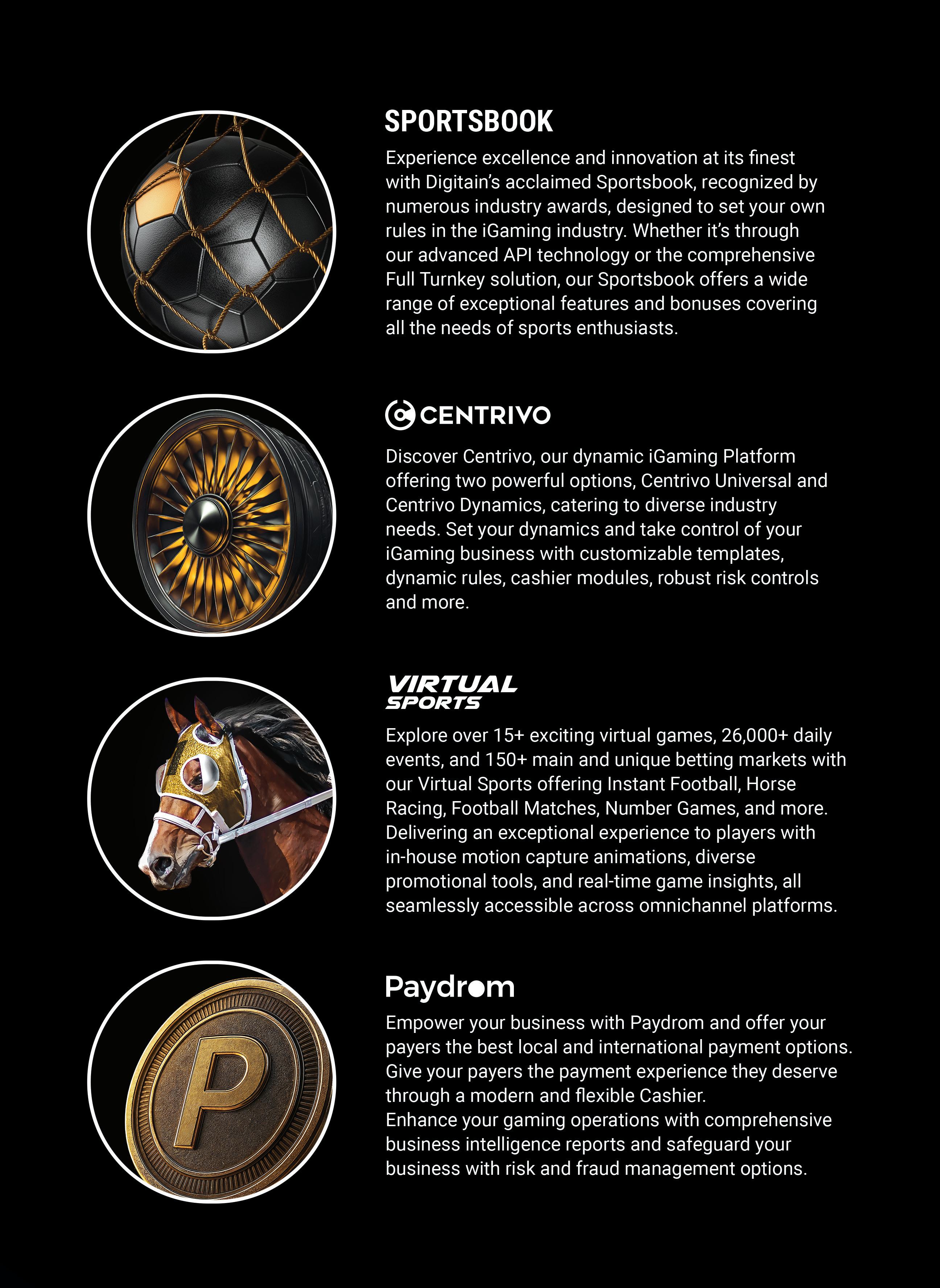
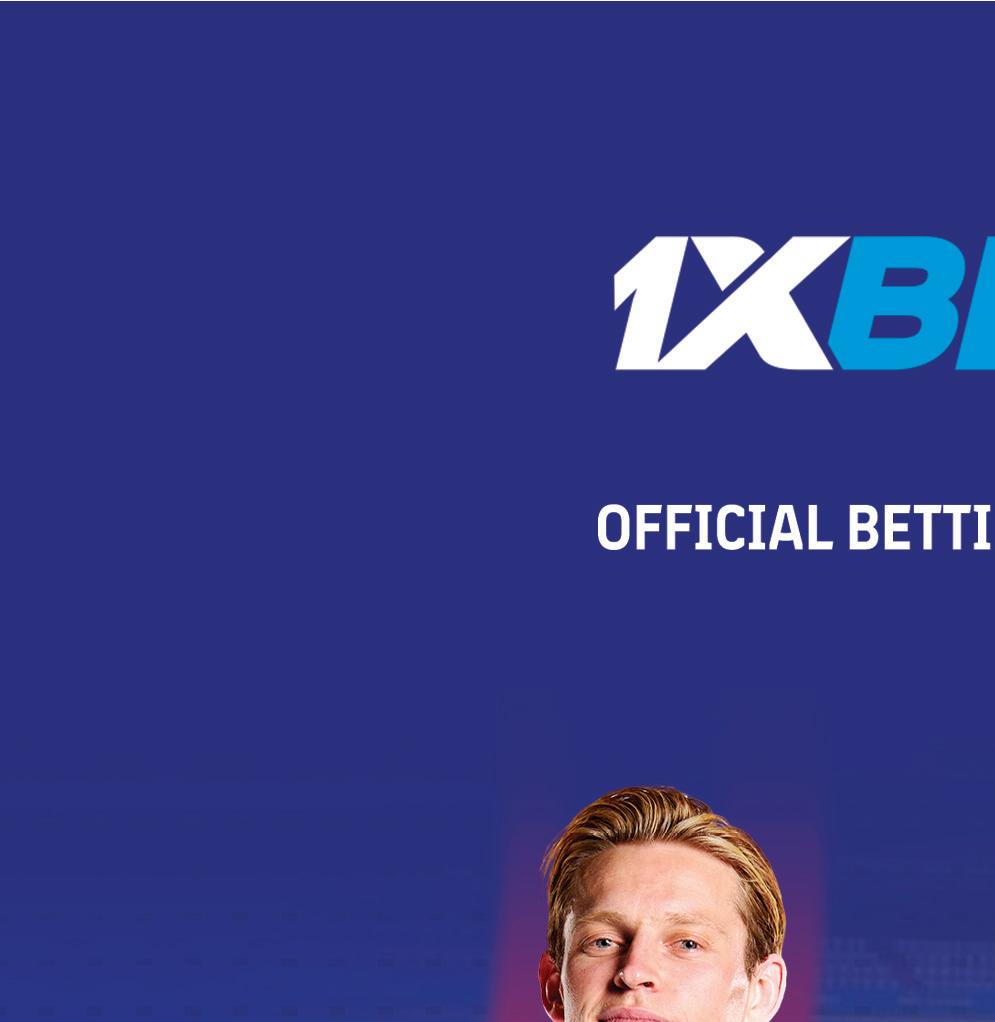








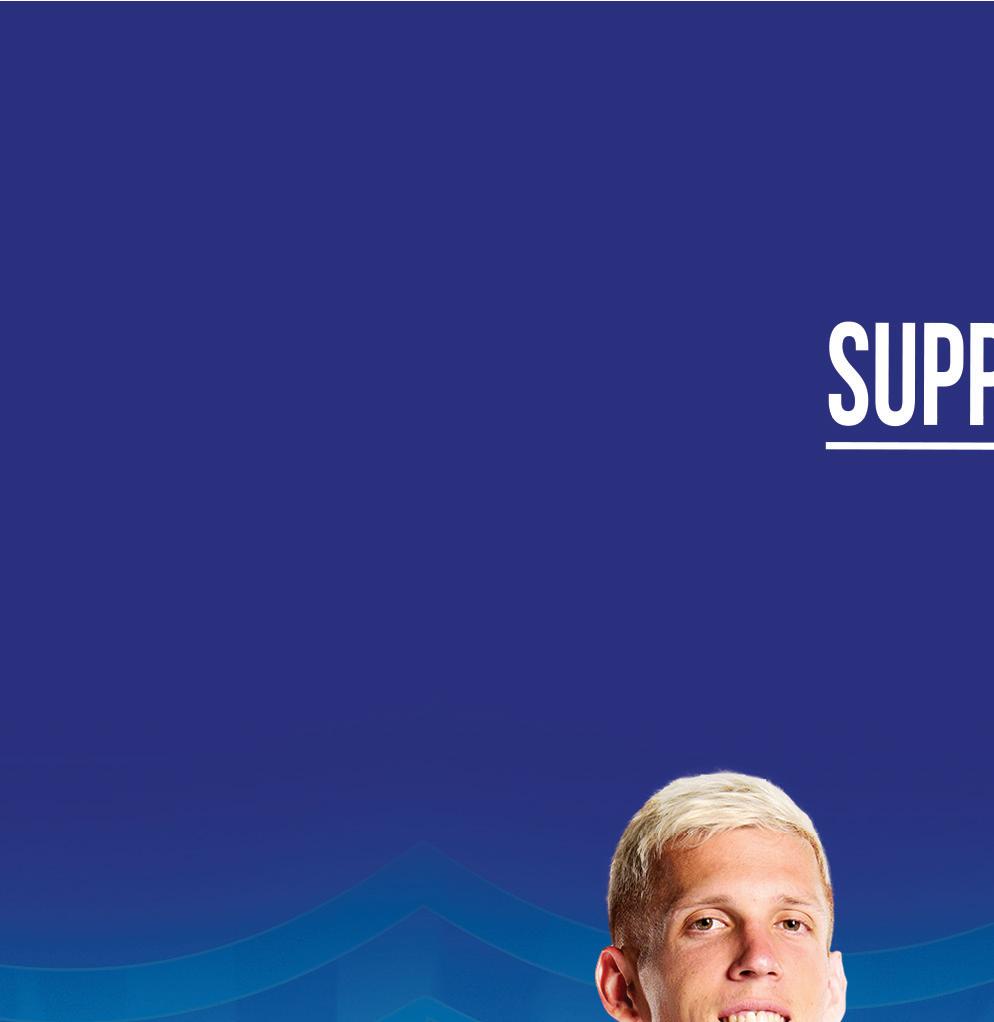

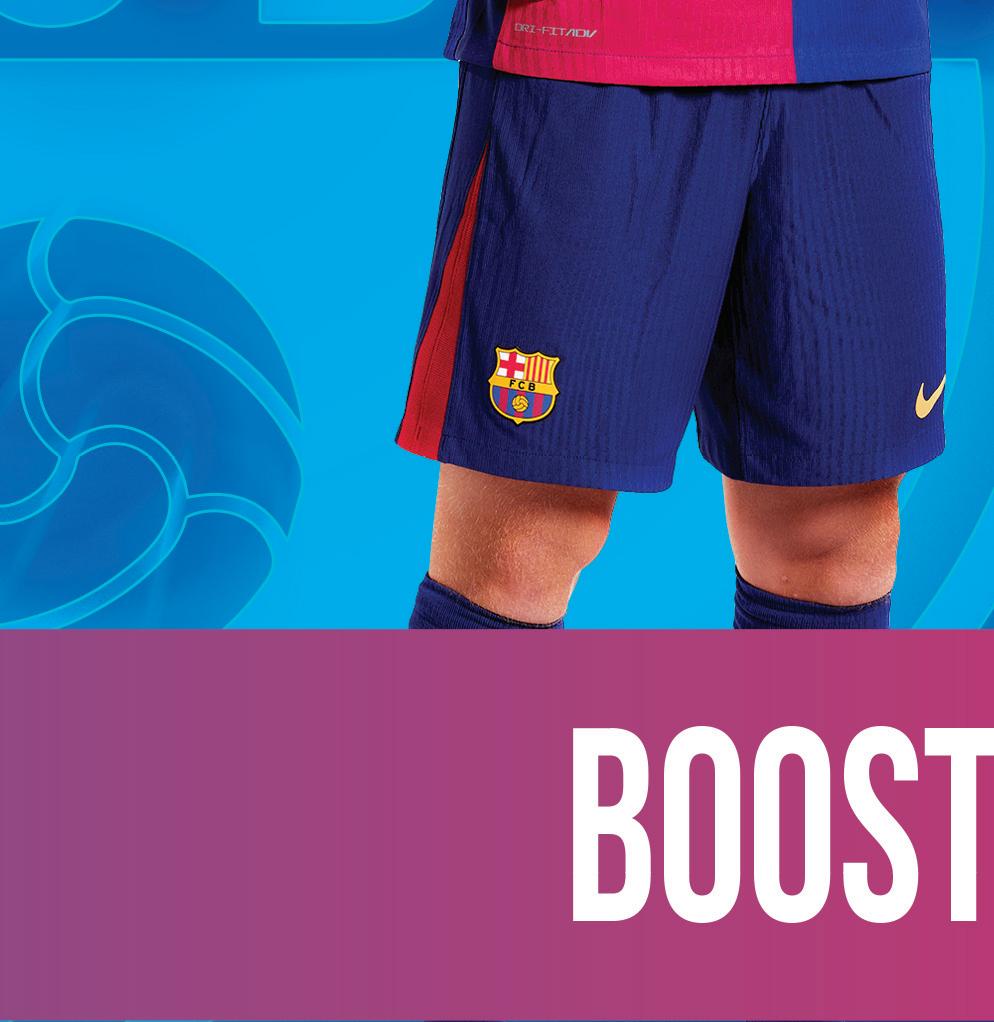









WINNERS REVEALED: Reviewing the Global Gaming Awards Asia-Pacific
Jul/Aug 2025

FIFTEEN FROM 15:
In our celebratory issue, special guests look back...
Industry experts explore gamification’s present & future


























OJulian Perry, COO, Editor-in-Chief

Tim Poole, Editor
ver the course of 15 years, Gambling Insider has become an institution. What started out as a publication designed to provide top-level insight to executives has become a leading source of news, interviews, analysis, discussion and a genuine vehicle for both thought and change.
But I say this not with arrogance. I say this looking at the wider industry media. Across the global media landscape, what industries have as buzzing and thriving B2B specialist coverage as gambling? Honestly, I can't think of many. There has always been an appetite and desire for journalism within gambling – and that has evolved into a whole sector in itself today.
Something I think about often is the idea of specialised media: a world where readers only visit specific websites for a single industry, without any generalist coverage. It may be unrealistic or impractical, but the quality of information on show would be far superior in that hypothetical world.
Just look at gambling. Journalists at national publications are not industry experts; they come with an agenda. Any stats, facts or trends discussed on the pages of those websites or newspapers are often lazily researched, politically motivated or just plain wrong.
At Gambling Insider, by contrast, we might not be able to tell you the latest technology updates in European aviation, or the latest in farming equipment across the US. But we do know gambling like the back of our hand. And our dedication to breaking news and featuring only the best analysis has resulted in the magazine (and digital equivalents) you see before you today.
We're not interested in selling people awards, we're not interested in senseless self-promotion. We comment on the real trends and the real developments.
As for my role in all this? I'm proud to have followed the established editorial traditions set before me, having spent just short of seven years here and worked with some of the finest journalists one could ever hope to meet.
Naturally, I've put my own spin on things and, as you'll see from our cover feature – where we celebrate 15 years with 15 different reflective pieces – I've come to know some of the industry's biggest players and Gambling Insider's most knowledgeable contributors quite well.
Elsewhere in this magazine, we still have our staple features to bring you. The Global Gaming Awards Asia-Pacific took place on 4 June in Manila – and we bring you all the winners in a dedicated section this issue. We also look into gamification in our Roundtable feature, bring you our trademark Insiders section and review some of the latest products on the market. Everything you'd expect from a Gambling Insider magazine!
Allowing my mind to wander back, however, my very first experience in the industry came working for Ladbrokes when it merged with Coral. Little did I know as an initial outsider just how historic that merger would become, and how many ex-Ladbrokes executives I would later meet and interview as Gambling Insider Editor... even in our prestigious CEO Specials!
I remember my first ICE week, reviewing it for this very magazine and being blown away by the experience. Six years later, ICE has moved from London to Barcelona, fuelled by the never-ending need for greater space within this relentlessly growing sector.
Another personal parallel for me is that Sara Slane was one of the first people I interviewed. She was an American Gaming Association (AGA) executive at the time, championing the benefits of legalised US sports betting – back then in its infancy. I recently spoke to her on the Huddle as a representative of Kalshi, a prediction market operator opposed by the AGA. How things change! From DraftKings' SPAC-driven acquisition of SBTech to Eldorado Resorts' $17.3bn reverse merger with Caesars, I've seen so much change already. And, after 15 years of Gambling Insider, we remain as determined as ever to cover any further change to the absolute highest editorial standards. Objectively reporting news, holding wrongdoing to account and providing thought-provoking comment, opinion and analysis. It's what we do.
TP, Editor
COO, EDITOR IN CHIEF
Julian Perry
EDITOR
Tim Poole
Tim.Poole@gamblinginsider.com
SENIOR STAFF WRITER
Beth Turner
STAFF WRITERS
Will Underwood, Kirk Geller
CONTENT WRITER
Megan Elswyth
LEAD DESIGNER
Claudia Astorino
DESIGNERS
Olesya Adamska, Callum Flett, Gabriela Baleva
JUNIOR DESIGNER
Medina Mammadkhanova
ILLUSTRATOR
Judith Chan
MARKETING & EVENTS MANAGER
Mariya Savova
FINANCE & ADMINISTRATION ASSISTANT
Dhruvika Patel
PUBLISHING ASSISTANT
Abi Ockenden
IT MANAGER
Tom Powling
COMMERCIAL DIRECTOR
Deepak Malkani
Deepak.Malkani@gamblinginsider.com
Tel: +44 (0) 204 591 3117
ACCOUNT DIRECTOR
Michael Juqula
Michael.Juqula@gamblinginsider.com
Tel: +44 (0) 207 039 9186
SENIOR ACCOUNT MANAGER
William Aderele
William.Aderele@gamblinginsider.com
Tel: +44 (0) 203 884 9277
ACCOUNT MANAGERS
Irina Litvinova
Irina.Litvinova@gamblinginsider.com
Tel: +44 (0) 203 855 0662
Serena Kwong
Serena.Kwong@gamblinginsider.com
Tel: +44 (0) 203 787 4615
Joe Smith
Joe.Smith@gamblinginsider.com
Tel: +44 (0) 203 882 9693
BUSINESS DEVELOPMENT MANAGER - U.S.
Miguel Malave
Miguel.Malave@playerspublishing.com
Tel: +1 702 850 8503
AWARDS SPONSORSHIP MANAGER
Michelle Pugh
Michelle.Pugh@globalgamingawards.com
Tel: +44 (0) 207 360 7590
CREDIT MANAGER
Rachel Voit
WITH THANKS TO:
Oliver Lovat, Paul Sculpher, Alex Czajkowski, Moshe Adir, Mark McGuinness, Joerg Hofmann, Ranjana Adhikari, Shashi Shekhar Misra, Dhruv Jadhav, Duncan Garvie, Gustaf Hoffstedt, Willem van Oort, Paul Newson, Becky Liggero Fontana, Neil Montgomery, Anders Dorph, Daniel Bliss, Keith Seisun, Jon Bryan, Rostyslav Likhtin, Rich Evans, Yoel Zuckerberg, Andrés Blanco, Stian Enger Pettersen, Motti Colman, Ani Mkrtchyan, Toni Karapetrov, Sarah Gardner, Gerasim Khachatryan and Martin Martirosyan.







Reflects
Looks
Analyses
From dial-up to blockchain, gaming's journey is full of stories...
48 Mark McGuinness
Looks back on changing opinions about iGaming over the last 15 years
50 Joerg Hofmann
Provides a timeline on 15 years of change in German gaming
52 Adhikari, Misra & Jadhav
How has Indian gaming changed in the last 15 years?
54 Duncan Garvie
Analyses how regulation and responsible gaming have changed in the time since Gambling Insider’s first publication
56 Gustaf Hoffstedt
Predicts what might change in gaming over the next 15 years...
58 Willem van Oort
Looks at how regulation in the Netherlands has changed during the Gambling Insider era
60 Paul Newson
Gives his take on the state of the Australian gaming market






64 Becky Liggero Fontana
Looks back through 15 years of industry events and conferences
66 Neil Montgomery
Assesses the ever-changing, and now regulated, Brazilian market
68 Getting it right
Gambling Insider spoke to Spillemyndigheden and Ygam on how to avoid ads appealing to under-18s
72 Rising costs in Malta
Head of Licensing at IGA Group Malta
Keith Seisun gives insights into the value of Maltese gaming licence in today’s market
74 What is at stake?
Gambling Insider contributor Jon Bryan discusses the disproportion between inflation rates and betting limits
76 The LatAm esports cash-in
Data.Bet Head of Product Rostyslav Likhtin discusses the state of the esports market in LatAm
78 Affording change
LexisNexis' Rich Evans discusses the UK’s new affordability regulations
80 Roundtable
Industry experts weigh in on the differences in casino and sportsbook gamification, RG and more
88 Ani Mkrtchyan Digitain
89 Toni Karapetrov Habanero
90 Sarah Gardner Gambling Commission
91 Gerasim Khachatryan SportGenerate
92 What's new?
Gambling Insider delves into the latest products on offer
96 Martin Martirosyan Imagine Live
With Q1 reports out across the industry, Gambling Insider compiles the data to assess the latest market trends...
Q1 tier-one operator revenue ($m)
Source: Company sites
* Flutter Q1 results prior to Q1 2023 have been converted from £ based on conversion (accurate as of 13.05.2025 exchange rate)
Across the board, both sportsbook operators and casino operators have seen growth in revenue since 2021. With Q1 2021 still being a period impacted by global lockdowns and Covid-19 measures, this is unsurprising.
MGM and Caesars, who operate land-based casinos as a primary revenue stream as well as online gaming services, see revenue relatively close to one another in 2021 – something again likely impacted by the Covid-19 pandemic. Wynn, meanwhile, which has a limited online presence yet a significant presence in Macau, fell significantly behind, outperformed by global sportsbook operator Flutter.
Source: Flutter
As of this latest reporting, all non-US segments have been compiled under Flutter's International segment. This shifting focus towards the US is reflected in both recent Flutter business moves and the resulting split in earnings, with the operator exiting Euronext Dublin and making the New York Stock Exchange its primary listing.
Indeed, while UK&I revenue grew by just $21m year-on-year, US revenue was up by $256m, totalling $1.67bn. While the US segment has yet to earn more than half of Flutter’s revenue, with non-US revenue totalling $2bn, the trajectory of growth of this section compared to others suggests this may soon be the case.
Asia Pacific, Brazil and other regions saw a decline in year-on-year revenue, with Asia Pacific seeing a notable decline, down from $358m in Q1 2024 to $313m in Q1 2025. Brazil’s revenue also took a dip, from $16m to $9m, though this may be attributable to the regulation of the market at the start of the year and subsequent fees and market competition.

1,000 1,500 2,000 2,500
Source: Flutter
While sports betting revenue continues to outperform iGaming revenue across its global operations, its trajectory of growth seems to be arching, with significant year-on-year growth between Q1 2022 and Q1 2023, but a slowdown from Q1 2023 onwards. Meanwhile, iGaming’s growth appears far more consistent, with the gap in revenue between the two segments seemingly getting smaller.
Other revenue sources have experienced a slow but steady decline over the past five years. A focus away from these products, in order to push high-earning sportsbook and iGaming products, may be to blame for this. However, given some of Flutter’s recent investments outside of sports betting and iGaming, such as its acquisition of Italian lottery brand Sisal and later of Italian iGaming brand Snai, these figures may see some level of revival.
Source: Company sites
While DraftKings and Flutter both receive the majority of their revenue from sports betting operations, BetMGM bucks the trend by receiving the majority of its earnings from iGaming.
In the US specifically, DraftKings and Flutter’s US sportsbook, FanDuel, occupy the majority of market share. This can be seen clearly in New York’s April 2025 sports betting numbers, where of the $2.2bn handle, the two generated $727.4m and $822.5m respectively — over 70% of the total. BetMGM, meanwhile, reported handle of just $154.1m, or 7% of the total.
However, it is worth noting that, at present, only seven states offer legal iGaming; these being Michigan, West Virginia, Pennsylvania, Delaware, New Jersey, Rhode Island and Connecticut. If more states begin to offer iGaming options.
It is also worth noting that, despite their differences in overall revenue, BetMGM generated $20m more in Q1 iGaming revenue than DraftKings.

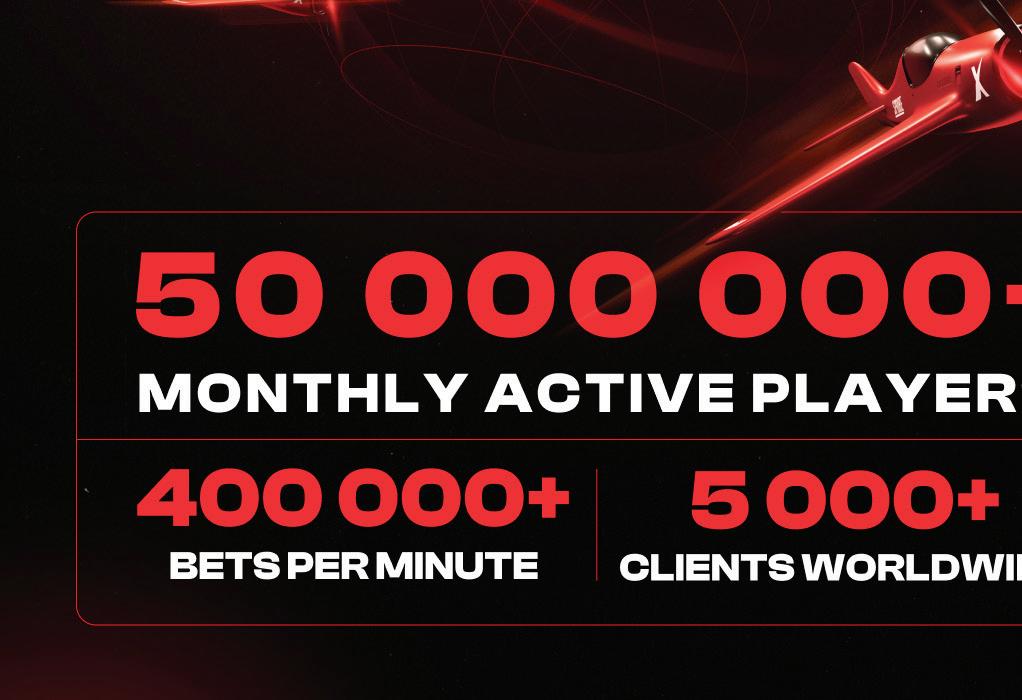
Source: Caesars, MGM Resorts International
While MGM Resorts primarily generates it revenue from its Las Vegas Strip operations, Caesars draws its revenue from its regional operations. Indeed, in Q1, MGM Resorts made $2.18bn from the Strip and $900.4m from regional operations, while Caesars made $1bn from its Vegas operations and $1.39bn from regional operations.
Caesars Digital also makes up a more significant portion of its revenue compared to MGM Digital, making $335m in Q1 2025 to MGM’s $128.1m.
However, what puts MGM’s revenue so far ahead of Caesars’ is its MGM China operations. Macau frequently generates monthly revenue far greater than the Las Vegas Strip, having made $2.32bn in April 2025 compared to $1.3bn made by the state of Nevada. While MGM China did not outperform MGM Vegas operations in Q1 2025, it did outperform MGM regional operations, making $1.03bn compared to $900.4m from regional operations.
Source: Wynn Resorts
The Macau SAR Government initiated a diversity strategy in recent years to diversify revenue in the region beyond gaming. The 1+4 initiative includes development of the health, financial institutions and tech sectors, but has also encouraged gaming operators to engage in more non-gaming revenue sources, such as entertainment, food and drink and culture. Despite these efforts, nongaming efforts at Wynn Palace and Wynn Macau remain fractional to casino revenue generated by the properties.
Vegas operations, meanwhile, show far more diversity in their revenue streams, with both rooms and food and beverage generating more in revenue in Q1 2025 than casino operations. Yet, Encore Boston Harbor shows a spread of earnings not too dissimilar to Wynn Palace of Wynn Macau, making the Vegas Strip something of an outlier in terms of funding sources.









Gambling Insider tracks prices from some of the industry’s most prominent operators, suppliers and affiliates over the past 15 years. Stock prices are taken across a six-month period (January 2025 to June 2025) – and from the close of the first available date in the month
• Six-month high – March (271.2 USD) • Six-month low – April (222.82 USD)
Market capitalisation – US$43.37bn (as of 2 June 2025)
• Six-month high – May (124.6 SEK)
Six-month low – February (105.8 SEK)
Market capitalisation – US$708m (as of 2 June 2025)







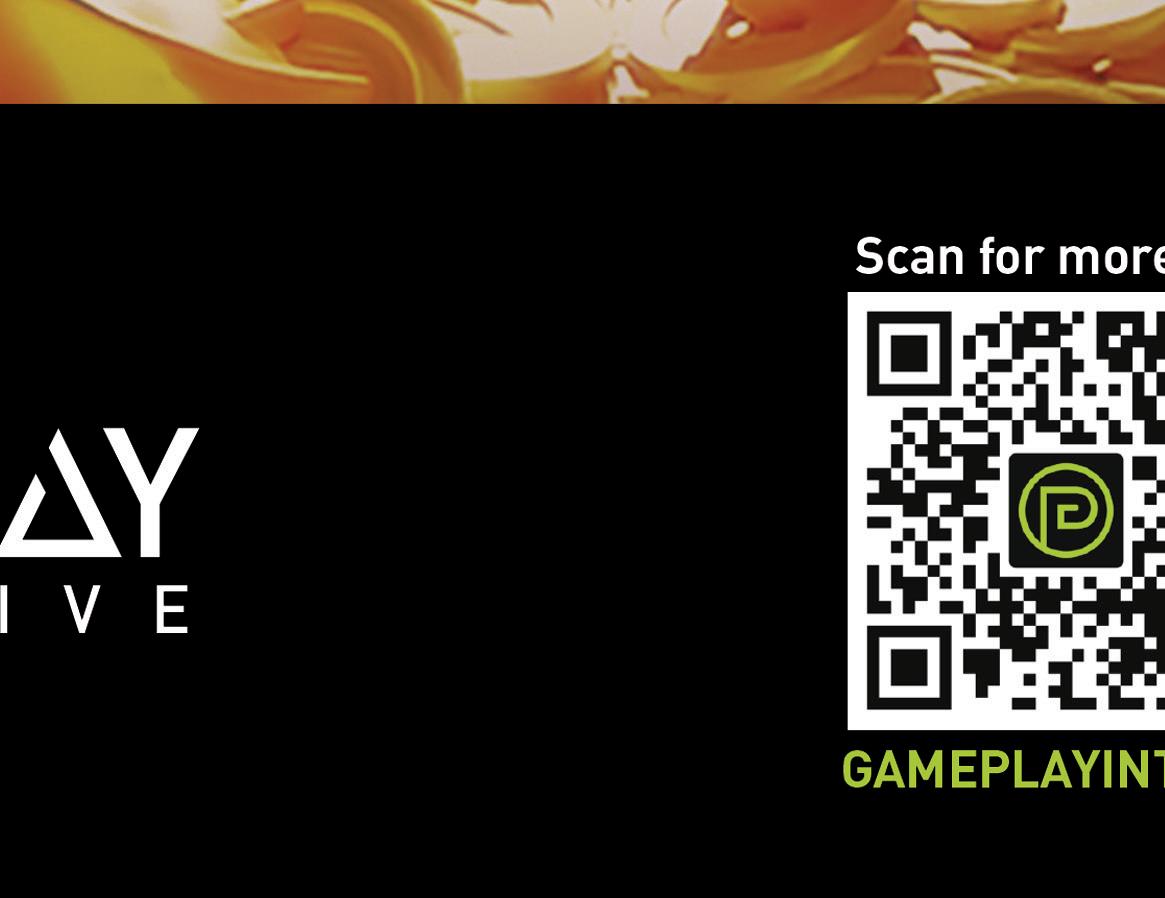
Market
• Six-month
Six-month
– June (121.8 SEK)
– January (104 SEK)
– US$370m (as of 2 June 2025)
• Six-month high – February (73.53 AUD)
• Six-month low – June (62.03 AUD) • Market capitalisation – US$26.25bn (as of 2 June 2025)
• Six-month high – February (19.33 USD)
• Six-month low – June (12.31 USD) • Market capitalisation – US$730.7m (as of 2 June 2025)
• Six-month high – March (17.31 USD)
–
(14.65 USD)



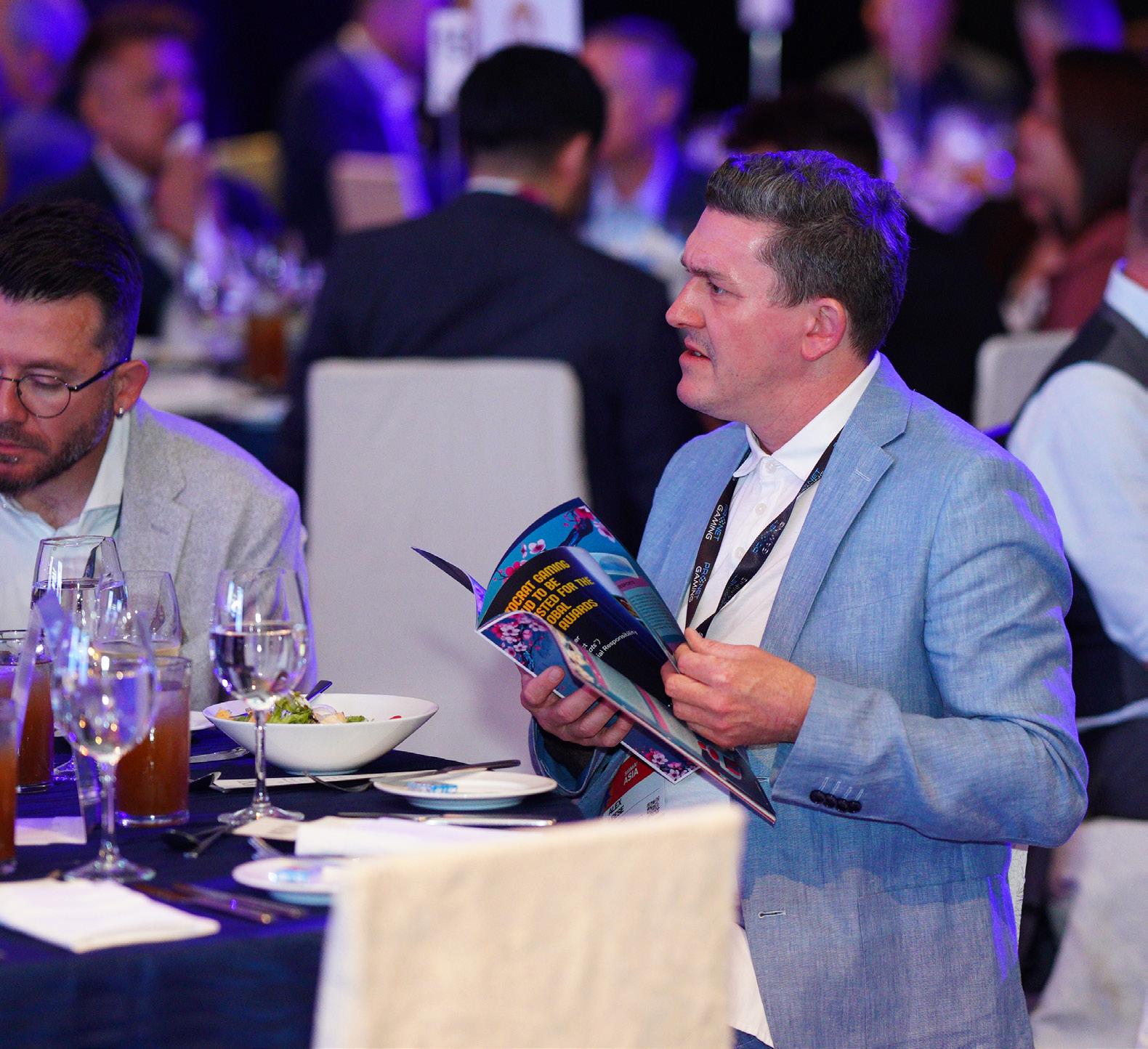



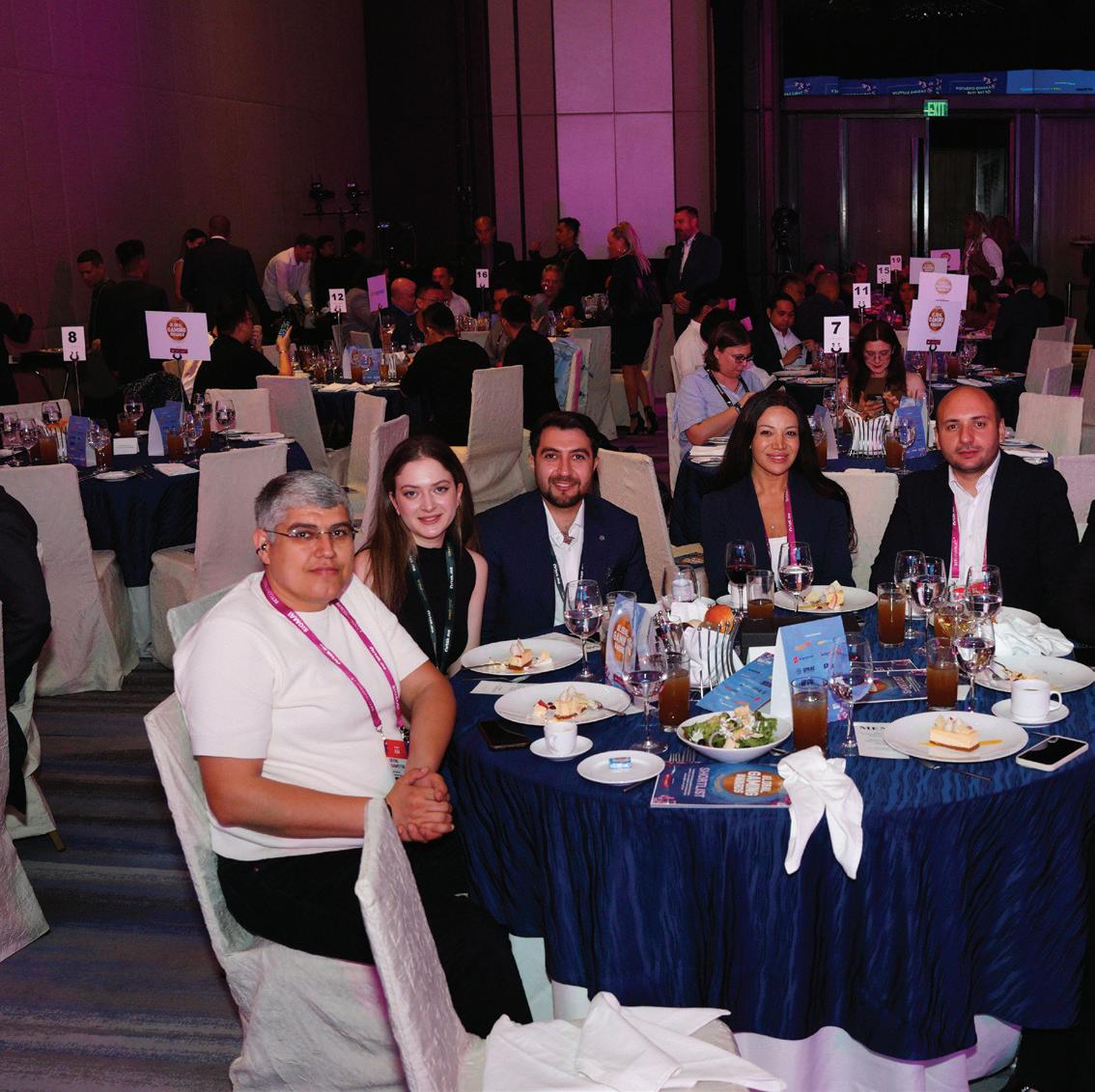





















“We are truly grateful for these recognitions, which reaffirm GEG’s commitment to elevating Macau’s integrated resort offerings and strengthening the city’s positioning as a World Center of Tourism and Leisure, guided by our ‘World Class, Asian Heart’ service philosophy. We sincerely thank our guests and partners for their unwavering support and remain dedicated to working alongside various stakeholders to drive sustainable growth” - Mr. Kevin Kelley, Chief Operating Officer, Macau of Galaxy Entertainment Group
“Being recognized by such a respected panel of industry experts is truly an honor. It’s incredibly rewarding to be acknowledged by our peers and competitors. I’m immensely proud of our dedicated team who made this possible”
- Evan Spytma, CEO, Casino Plus


“This Award reflects our dedication to innovation, integrity and excellence in digital entertainment. We are honoured to represent the Philippines on the global stage and will continue to set the standard for what responsible, tech-driven gaming can achieve”
- Eusebio Tanco, Chairman, DigiPlus





“We’re honoured to be recognised as the Digital Casino Supplier of the Year. A massive thank you and congratulations to our amazing team for making this achievement possible”












“We’re excited to see our comprehensive sportsbook win accolade after accolade. This recognition underscores BetConstruct’s commitment to delivering cutting-edge, scalable and localised sports betting solutions to partners in the Asia-Pacific region”

“We’re honoured to receive the Casino Product of the Year Award for Big Fu Cash Bats. This achievement is a testament to the incredible dedication of our teams and the continued support from our APAC customers. A huge thank you to our partners, players and everyone who made this possible!”

Alvin Manabat, Technical Director, accepting the Award

“We are surprised and honored to receive this Award from GGA, Thank you! This recognition is a testament to ANGEL Team Members’ hard work, creativity, development competency and foresight especially where Smart Table System is concerned. We have a fabulous product and we look forward to more placements in the near future.”

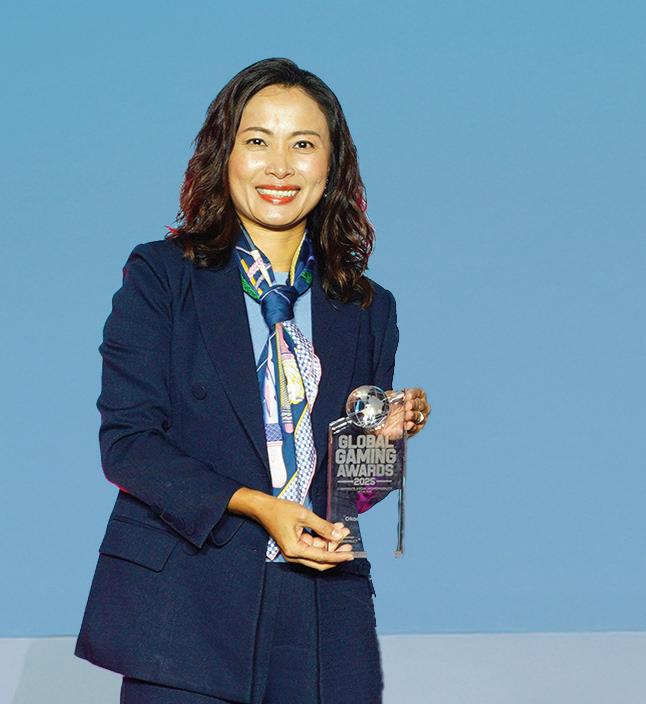
Reddy Leong, Vice President, Corporate Marketing and Communications, accepting the Award

“Okada Manila is honoured to receive the Corporate Social Responsibility of the Year Award at the 2025 Global Gaming Awards Asia-Pacific – a recognition of the impact made by the Okada Green Heart programme, and the property’s ongoing commitment to sustainability and community development”



“We’re grateful and proud to be named Casino Supplier of the Year. A big congrats to our teams who never settle, and thank you to our customers and partners for their support. This Award is a testament to how we win as a team, time and time again”













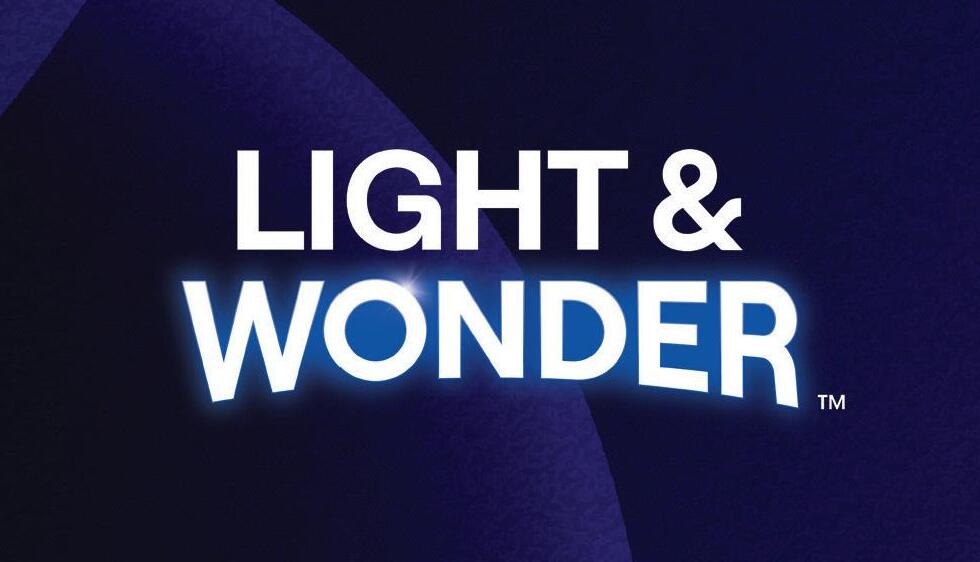




























































Daisy Ho, Chairman & Executive Director, SJM Holdings







































































... has interviewed some of the industry’s most prestigious names over the last 15 years – as you can see in the surrounding images. Overleaf, contributors and respected industry professionals look back on how the industry has changed in that time – and how this publication guided them through all the latest news, trends and developments along the way!
















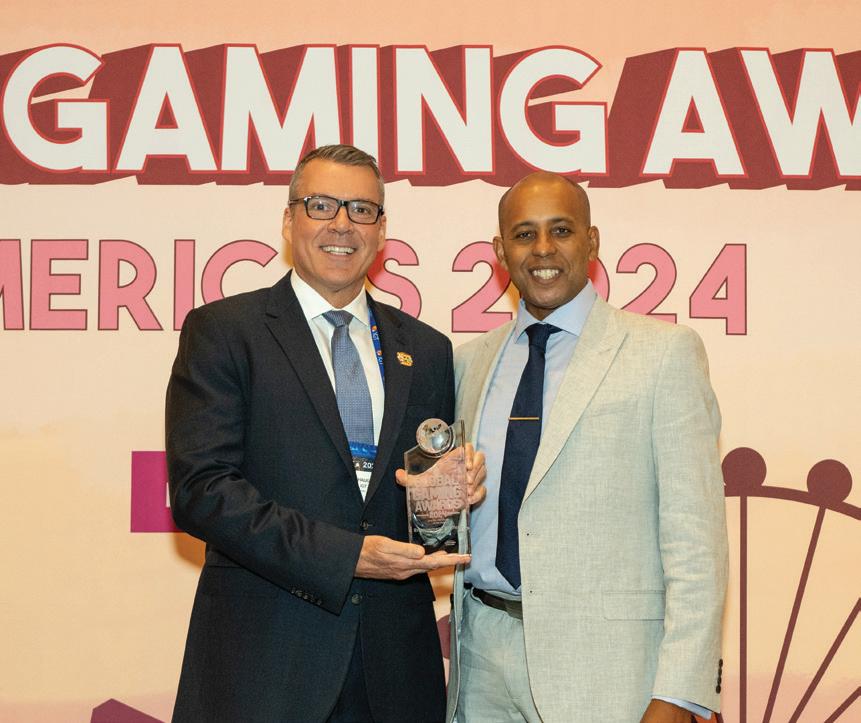













Over the last 15 years, Gambling Insider magazine has interviewed the most influential executives in gaming, covered the biggest deals in gaming history and seen the most prestigious Awards in the












































Global Gaming Awards Event Manager Mariya Savova gives us her personal take on how Gambling Insider created the Awards and how they evolved









of its region, while maintaining a consistent focus on innovation and leadership. Gambling Insider’s Founders had a vision to create Awards that are truly fair – and they succeeded in doing so.






As Gambling Insider gained popularity among the industry in those first few years, the next natural extension of the business was to create a set of Awards. In 2014, that is how the Global Gaming Awards came to be.
Now an integral part of not just Gambling Insider and Gaming America but the gaming industry, the Global Gaming Awards were designed to recognise and reward talent and outstanding achievements across both the land-based and digital sectors. As the industry evolved – driven by technology, consumer behaviour, regulation and global expansion –the Awards evolved in parallel.

What began over a decade ago as a single event in Las Vegas on the Monday of G2E has grown into a global series of three prestigious ceremonies. In 2018, Gambling Insider launched the Global Gaming Awards Europe, Middle East & Africa, held in London’s Hippodrome Casino between 2018-2024, and as of this year – in Barcelona. In 2022, a third Global Gaming Awards event was added, dedicated to the Asia-Pacific market and held in Manila. Our flagship Global Gaming Awards Americas event remains in Las Vegas and is held every October during G2E.
Each edition of the Global Gaming Awards now reflects the distinct dynamics





in doing so.













Companies are nominated for the Global Gaming Awards on merit, for a specific reason, related to their achievements in the respective region from the past 12 months. That reason is made publicly available. In addition, the winners are chosen by senior industry executives, meaning it is not us at Gambling Insider saying to the winners that they are the best, it is the industry saying so. And if that’s not enough proof of the prestige and fairness of the Global Gaming Awards, KPMG has been acting as the Awards’ voting adjudicator since day one.
winners are chosen by senior industry executives, meaning it is not us at
Each year we review the categories for all three Global Gaming Awards events and evaluate whether they represent the industry well at this moment in time. Looking back on the past 12 years, one can see how much the industry has evolved just by the small tweaks we have made to the Awards categories.
Slowly over the years, more digital categories were added. Verticals such as Payments emerged, particularly post-Covid-19, which accelerated the industry’s shift towards cashless. Bringing breakthrough technology to the land-based casino floor is another recent trend, which resulted in us adding the Casino Services Supplier of the Year category to our Americas Awards this year. With more and more companies cleverly harnessing the power of AI, it is probably a matter of time before we have a category solely dedicated to that as well.

It’s not just the categories that tell the story, the winners over the years reveal a significant amount about how the industry has grown and changed, too. Just a few years ago, Aristocrat was one of many companies that were simply

shortlisted. Today, it consistently takes home in highlighting not only its remarkable growth, but also its emergence as a true powerhouse in we
shortlisted. Today, it consistently takes home awards in every category it’s nominated for, highlighting not only its remarkable growth, but also its emergence as a true powerhouse in










Elsewhere, we had companies such as Microgaming and NetEnt swooping up the Digital Supplier categories, until the live casino vertical took the industry by storm and along came Evolution.


Digital Supplier categories, until the live casino vertical took the industry by storm
On the land-based side we now have companies such as MGM Resorts winning awards not just for their offline operations, but for their digital arm, BetMGM – a past winner at both the Global Gaming Awards Americas and EMEA.
Another standout winner I’d like to highlight is Amy Howe, CEO of FanDuel, who made history as the only person to win the Executive of the Year award three times (and in a row). Each win was well deserved – under her leadership, FanDuel became America’s #1 sportsbook and the fastest-growing iGaming operator. But beyond her professional success, what stands out to me is what her wins say about our industry. Amy joined FanDuel in 2021 from outside the gambling sector and, by 2022, the industry had already recognised her exceptional impact. Her story is a powerful example of how open and welcoming this industry can be to strong, visionary leadership, regardless of where it comes from.
The past 12 years of the Global Gaming Awards have not only celebrated success, but they have also told the story of an industry in constant transformation. From the era of land-based dominance to the explosive growth of iGaming and online sports betting across the globe, from local operators to global giants, and from traditional slots to AI-powered solutions, the Awards reflect how far the industry has come and spotlight those leading it into the future.
In an industry defined by constant reinvention, the Global Gaming Awards remain a vital platform for recognising innovation, leadership and integrity. Every day I feel incredibly honoured, privileged and grateful to be part of the Gambling Insider team and lead the industry’s MOST PRESTIGIOUS AWARDS.



One of our most thorough contributors across both Gambling Insider and Gaming America, Denstone Group CEO Oliver Lovat re ects on 15 years of changing Las Vegas trends – and some of his most memorable columns
It is almost 15 years ago to the day that I seriously started thinking about researching Las Vegas casinos’ business models. My original sole intention was to publish an MBA thesis that would be less boring to write (and read) than my previous MSc tome on pan-European investment strategy.
Working in real estate development, investment and capital markets, and engaging with Las Vegas as a customer, afforded me the luxury to think tangentially, almost ethnographically, about casino, gaming and hospitality experiences with no preconceptions or experience-based learnings.
One of my earliest findings in seeking critical literature was that well-researched independent commentary on the business history and strategic insights found in this industry was limited. Gambling Insider, and later Gaming America, allowed me to offer a perspective on previously unexplored topics that I found of interest, with the assumption that others shared my curiosity.


As my interests deepened, “Westward Ho,” the historic call from the Thames, was once


repeated, with the destination being Southern Nevada. With hundreds of articles, papers, podcasts, interviews, conference appearances and speeches, and an active transition from a career to casino and hospitality development, I have been afforded to the platform to develop a body of work that I hope has been both thoughtful and useful to the ongoing evolution of the industry.
Taking a moment to pause in marking 15 years, what makes this anniversary so resonant is not just the ongoing excellence of this publication, nor is it that my primary thesis has changed (although it has evolved) or that my curiosity has dimmed, but how much the landscape has changed with this subject area. It was once considered niche –but is now positively mainstream.
Reviewing my early columns in Gambling Insider, I am struck by both the prescience of my contemplations and how young I looked in the accompanying photograph!

advantage in casino resorts and the impact of evolving customer behaviour on the established operator’s business models.
My first column in the magazine was based on my primary thesis on casino strategy, which has not changed. It features a line I have written countless times: “There are only two strategies for sustainable success in the land-based casino business. The first is location and the second is securing customer loyalty.”
In analysing Las Vegas back in the early 2010s, I observed the market and posed the question, little to know I would spend the best part of the subsequent decade seeking to answer it!
“New-build resorts (are) seeking to capture the next generation of customers, who are smart, educated, under 40 and have disposable income. These guests seek functional benefits and crave new experiences, so no matter how enjoyable their stay, the marketing focus emphasises attraction and not retention.




The primary issues explored in my initial



The primary issues explored in my initial research and writing were strategic competitive

“Compounding the challenge, this segment has higher expectations and, unlike their parents, they are extremely disloyal. This poses a real question for the industry. Can resorts develop and program their properties in order to engender loyalty in the most disloyal generation of customers?”
Another early column was looking at the changes in Downtown Las Vegas, where it seemed possible that investment could revive a market that had been ravaged by the Great Recession.
“Downtown is being painstakingly restored, paying a nod to its history. The City of Las Vegas has invested alongside the private sector in The Smith Centre for the Performing Arts, and the former courthouse is now the Mob Museum. Both opened in 2012.”
Over the past 15 years, I monitored the shifts in demographic change and pondered what this would mean for the city.

“In 2009, 72% of visitors were 40 or older. By 2014 this was 57%, and the average age had moved from 50 to 45.2. A total of 19% of visitors were from abroad – up from 14% in 2009. New visitors are younger, international and are not traditional gambling customers.”
In 2015, I asked the question in this magazine, “Will Las Vegas regain the F1 Crown?” making the case for my (then) future home to be added to the race calendar, even proposing that Las Vegas could be “The Sporting Capital of The World” (in Gaming America) an idea that seemed farfetched when I made the initial case.
I also suggested that casinos further align with non-gaming brands (with a clear segmented following) as a tactic to capture “tribal” loyalty from those that have alignment with such brands.
Along the way I have written histories and provided strategic insights to the success and failures of many properties, including Luxor, Landmark and Dunes; analysed business philosophies including those of Sarno, Wynn and Adelson, provided ongoing commentary on the market, pre, during and post Covid-19; and posed structural questions placed in greater historical context.
What makes Las Vegas such a compelling destination is not just the weather (although it helps) but it is the confluence of the people, decision-making and layers of infrastructure that continue to make the cake more enticing as every decade advances. I also believe that the history and evolution of the city provide answers to many of the contemporary challenges I posed in my early questions.
The proliferation – and success – of landbased gaming is that it is no longer about excess demand and limited supply, but on creating destinations that are packed with experiences that encourage repeat visitation and engagement, which in turn encourages loyalty. The experiential landscape, from nightclubs, shows, dining and now a range of branded entertainment continue to ensure customers both stay for longer, spend across multiple verticals and increase repeatability are being emulated globally. This is particularly resonant to younger customers.
The renewed investment and recruitment to the sector from outside and non-traditional sources (of which I am part) has led to advances in strategic thinking in hospitality, entertainment and customer engagement that have aligned with the needs of the current and future customer base.
The capital structure of the industry has changed, with many properties being owned by REITs, which in turn are favorite assets of pension funds. The operating companies are among the most desirable firms for young graduates to start their careers. In 2018, the “upstart” UNLV was recognized as an R1 (Tier 1) research university by Carnegie Foundation and the American Council on Education, recognition it retained in 2021 and 2025.
Since 2020, the city has opened Resorts World, Fontainebleau and Circa. Also opening in 2020 was Allegiant Stadium. The venue was announced as the highest-grossing venue


in the US, only to be beaten by the Sphere in 2023, which has gained globally iconic status in under two years. As mentioned, we have witnessed Grammy Awards, a Superbowl, WrestleMania and a 2023 Stanley Cup win –from a team that launched in 2017, in an arena opened in 2016. And Las Vegas has recaptured the F1 crown, with two of the most watched races in the history of the sport. Each of which would be defining for any other city; in Las Vegas we ask: what’s next!

In seeking to program the market (not just resorts), the city has become one of the leading destination locations in the world, alongside those with far grander histories and greater populations.
From modest changes a decade ago, Downtown Las Vegas is now undergoing a full renaissance, not just in the tourism drivers (which were at record levels in 2024), but becoming a residential destination in high demand. Over 1,500 new homes are built and occupied Symphony Park, with over 500 more under construction. Hundreds more are due in the neighbouring Arts District. In 2010, the population of the
valley was under 2 million. It is expected to reach 3 million by 2030. The economy is diversifying; talk is of new hospitals, movie studios, relocating businesses, and of course, tourism and hospitality growth, as more resorts are planned, with others under construction. We eagerly anticipate the 660ft guitar-shaped hotel at the new Hard Rock, over 200ft taller than the Miami counterpart. There will be more sports teams and venues, and alongside sports will be advances across the tourism spectrum. Not traditionally associated with wellness, expect Las Vegas to further expand the range of offering, including non-traditional destinations and innovative programming.
There is no doubt Las Vegas is still writing its story. It won’t always get it right, but magazines such as this will play an important historical role in chronicling the changing perspective of what Las Vegas is, the strategic dimensions of hospitality management and the important role that the history of the city and industry has had in driving future change and possibilities.
Thank you for allowing me to share my voice, asking and answering the questions that need exploration, and being part of narrating this remarkable story.







Paul Sculpher, land-based casino and recruitment expert, is one of Gambling Insider’s most frequent and knowledgable contributors. Below, he re ects on 15 years of UK casinos...









When Tim asked me to look back 15 years, it sounds like an eternity. However, like all the other contributors I’m sure, thinking back to what I was doing and where the industry was at 15 years ago, seems like the blink of an eye.
When so little feels like it changes on a week to week basis – particularly with glacial UK regulation – it’s good for the soul to look further back and see how far we’ve actually come. Back in 2010, when dinosaurs roamed the earth (and in some cases the gaming floor) the big deal was the implementation of the 2005 Gambling Act, and all the exciting new licences that had been awarded to local councils and were being competed for.
15 years ago from right now, none of the 2005 Act sites were open – glacial, remember, right? However, a small surge of casinos were being schemed up, leases were being signed


of-town destination casinos haven’t necessarily been the usual UK plan, Resorts World makes the journey worthwhile.
The next “Large” licence to come to life was Victoria Gate Casino in Leeds. This was another project with very fond memories for me – I led the writing of the licence application in 2013 and was one of 2 Co-MDs when it opened in 2017. It’s still a fabulous site, dominating gaming in the City Centre and I’d argue as spectacular a visual experience as you’ll get in UK casinos.
Century Casino Bath didn’t fare quite as well as a 2005 Act Small licence casino – it opened in 2018 in Saw Close in the centre of town, but didn’t take quite such a stratospheric trajectory and was gunned down by Covid-19 shortly afterwards, never re-opening.



and dreams of wildly successful new gaming palaces were being polished up.
It didn’t take too long from then before we started seeing things happen. Aspers Stratford kicked off in late 2011, just in time for the London Olympics (which by the way feels about 1,000 years ago). They were probably the most successful of the lot, certainly in the early years – stories abound of panicked interim counts being needed because table drop boxes were too full of cash to wedge any more in! Many of the industry’s current senior leaders passed through Aspers in the early days; there’s nothing like a baptism of fire to set you up for success.

Other than a couple of licence category changes in Luton and Scarborough (turning a 1968 Gaming Act casino into a 2005 Gambling Act licensed casino largely to get more slots), that’s the story for the 2005 Act. I’d regard it as borderline tragic that so much opportunity was wasted for job creation, local government funding (via “Schedule 9” – basically money paid to councils by operators to have the right to use the licence) and the industry as a whole by flawed selection criteria. To have the cities chosen to be awarded these licences primarily by economic regeneration needs was to ignore the commercial realities of the situation. Nobody was ever going to develop a casino in Dumfries or East Lindsey, and if you switch those options for Croydon and Barnet, you’ve got hundreds of jobs and millions in council funds.

Summer 2012 saw a couple more new openings, at opposite ends of the UK casino scale. The Hippodrome was of course the big splash, and has undoubtedly changed UK casinos for ever – Executive Chairman Simon Thomas being able to claim the same accolade for Bingo (along with his late father Jimmy) with his Cricklewood site is quite the achievement. Opening a month earlier was Coral Island Blackpool – a site close to my heart as I was the first GM, and it’s still going strong with the inimitable Richard Munroe in charge.
Other casinos under the 2005 Act were soon to follow. Genting’s Resorts World opened in 2015 and is still rolling along – perhaps in better shape than its Las Vegas sibling. It’s a spectacular venue, super accessible by road, rail or air and, while out-
Add in the fact that several of the nominated sites already had casino operations, and you’re either going to get no new licence used (Middlesbrough, Great Yarmouth et al) or your new site is going to squeeze out one of the older casinos (Grosvenor Leeds, Broadway Birmingham) and reduce your incremental employment gains. It wasn’t very well thought through.
There’s one more new casino to mention, the delightful Napoleon’s Manchester. Deploying perhaps a slightly more classic look and feel, you’ll do well to find a better service ethic in a UK provincial casino, and great service never goes out of fashion.
So what’s next? Well, it looks – for the 23rd time – like we’ll finally have the new slots regulations in the UK (not quite nailed down at time of writing) and that’ll surely breathe new life into the business in most cases. Some casinos don’t have enough trade to justify more than 20 slots (or less in some cases) but places like the Hippodrome, Empire and aforementioned Naps Manchester will finally be able to satisfy the demand from their customers and not have queues, and the requirement for more non gaming space will lead to investment in the industry.
Is there an opportunity for more development? Well, there are certainly dozens of currently unused licences – largely stashed away by the bigger operators – and with more than 20 slots available per site, as well as cheap-to-operate Electronic table games being a UK staple –maybe some of those will be developed. Staffing will be the biggest challenge in new and existing casinos – without a serious pay bump, it’s always going to be tough to get people to work nights in a tough environment. You have to also add in the fact that vast overseas developments are coming down the track in UAE, Japan and possibly Thailand – all of which may be attractive to UK gaming staff to a greater or lesser degree.

As ever, change is the only constant, and while as an industry we’ve been desperate to see legislative change for decades, it’s the legal developments in other countries that might now be a material threat. More options for international players has already sucked some money out of the top end ecosystem in London – what we used to call the “Big Six” casinos are now two, with Crockfords, Ritz, Clermont and Maxims / PalaceGate gone – but that hasn’t made as much difference to non-premium sites.
New integrated resorts filleting the industry of staff might be a more pressing concern, but we’re a resilient bunch and, with the flexibility borne of decades of evolving challenges, life will find a way.
Industry veteran and Gambling Insider regular Alex Czajkowski discusses why everybody bets – or at least would like to try…
Just up from Costa Rica, I wasn’t in the habit of wearing socks.
“So, you really don’t think ‘everybody bets’ do you?” the ESPN anchor asked me on TV. I crossed my naked ankles wearing Prada loafers.
“Rent or buy? Have life insurance? Jewish, Christian, Muslim, atheist? Walk when it says
wanted to say. But, nervous and unsocked in a popular national sports broadcast, I waffled.
15-plus years later, however, my Sportsbook. com “Everybody Bets” tagline has never been more true. And we’re STILL just starting.
Looking back through Gambling Insider articles over the past 15 years, including mine,
Personalisation? Definitely getting better, at least in CRM (which I re-define below). Understanding the need for localised products for specific markets? It’s happening, profitably.


If you’ve been reading Gambling Insider all these years, maybe you know all this (but, like me, a reminder never hurts). If you’re newish to the biz, here’s some help. If you’ve been ACTING on it, you’re enjoying those margaritas on your boat on the Med (That’s to you Murray Chisholm).
I recently opened a presentation with an AI-modified variation of Nicolas Cage’s great opening lines from “Lord of War” (after the greatest opening titles in the history of cinema):
“There are 800 million players in the world. That’s one in every 10 people. The only question is: how do we get the other nine?”
Sure, the mobile revolution has come, shocker! Even my recent research on Canadian players, a very mature market, showed 90% of visitors to an iGaming site were on mobile (not clear what LTV on mobile versus desktop is, I’m betting on desktop though). In Asia, it’s closer to 95%-100% of real players on mobile, the desktop guys being us industry players (or regulators or worse) checking out competition.
Yeah, some people are using crypto in iGaming… and quite profitably for operators as their players are BY NATURE gamblers. But it’s really just the Neteller (although






game or game supplier. Don’t have a search box and a list of providers on your home page? Good luck.

At least casino lobbies have improved: select by providers, buy features, jackpots, number of paylines, sort by RTP, volatility or paylines. For experienced players (which have the highest LTV) these options are best and a far cry from the A-Z listing of RealTime Gaming’s lobbies 15 years ago. Achilles was their number one game for ages because a. it was first in the lobby, b. it has a medium volatility and c. had a jackpot.
After laying out “the future of iGaming in six letters” 15-plus years ago, we’re seeing the predictions come true, at least in casinos. The six letters? EZ, I1, TV.
way harder for most folks) of the post-Black Friday iGaming era.
I can’t help but look at the “Tier One” operators’ bounce rates…. And churn rates. What are we doing, or NOT doing, to “get the other nine”? Not to mention keep them playing.




EZ. As in easy-peasy Brits. Casino games have gotten easier to play. Lobbies easier to navigate. Registration forms and payment methods… in some markets SUPER easy. In the Philippines, Gcash emerged during Covid-19 for this previously largely unbanked and cash-driven economy as the e-wallet of choice. So deposits in a low credit card-penetration country became as easy as buying KFC or Jollibees.
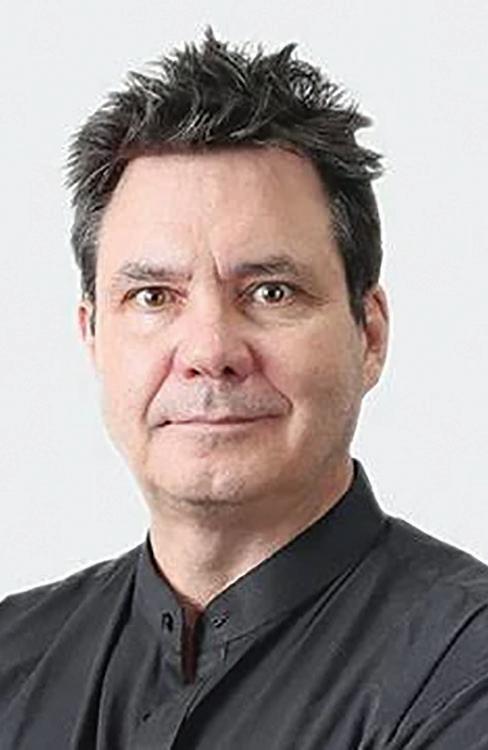
Over the last 15 years, there have been improvements across the sports betting industry. Live betting, instant cash outs, single-game parlays…. a long time coming for an industry NOT known for its innovation.
And the cost of this? Well, sports betting WAS half of the industry (in revenues), and casino a quarter, and everything else (bingo, lottery, poker…) the rest. Now, online casino is half the industry, sports betting a quarter and the rest the rest. All thankfully growing across the world.
Because casinos, and slots in particular, really started innovating.
Games and features got better – way better, check out Pragmatic Play’s Empty the Bank (note that nothing hits on the first spin in the feature, though)!

“Buy the feature,” a shortcut to the best part of many games… personally, I advise against using this (except on NoLimit City games where the feature has a higher RTP than the base game –and the industry’s best graphics bar none) is so attractive that Play’ N Go suggests banning it. But if you must try it (and it’s tempting), drop your bet the minimum, then go ahead and see how much you lose.
Improve your odds of hitting the feature with a slight increase in spin bet? Cool. Thank you Pragmatic Play for taking the slots-leader mantle from Playtech.
Thank you Big Time Gaming for Megaways (although I’m personally not fan, preferring fewer paylines) but players love it and actively search for it.
And that’s a big change as well: over 50% of players landing on your site search for a specific
Gcash then added a Glife section with miniapps from the relatively recently PAGCORregulated and approved “e-gaming” sites (online casinos) and the numbers rocketed! 40 million (out of a population of 125 million) joined BingoPlus from DigiPlus.
joined BingoPlus from DigiPlus.
All it took was a mobile phone number (passport/national ID required to get a SIM, now thanks to BingoPlus’ then CEO Elvis Chan’s aggressive SMS campaigns) and the Gcash account that almost everyone has. So no bots, minimal KYC (already done with Gcash), instant cash-in and out. Oh and millions spent on brand awareness. Can DigiPlus do likewise in Brazil with Pix? We’ll see – they’ll be trying.
I1. “I won.” We call national lotteries a “hope tax” as, despite their huge participation rates, their 60% hold ensures virtually no one wins. This is what also sank the brief poker revolution we saw from 2003-2008. You can’t win. In lottery, the possible return on the investment keeps people playing… in poker, not so much.
Players have to feel like they have a chance to win! Hence, games like Jili’s Super Ace, a fast, fun and EZ game to play with low to medium volatility so you feel like you DO win, is conquering Asia. Likewise “crash” games, with their modicum of “user agency,” you choose when to bail. But you feel like you CAN win.
In sports betting, you can win, but the payout… usually not impressive. Hence the rise of single game parlays where the win amounts can be impressive although the odds are against you. But the players don’t care… until they do. TV. Televised poker matches made the industry 15 years ago. But TV ain’t what it used to be (this, as everything, varies by geo and target market). Stake got its traction from
“influencers,” on Twitch, YouTube and the other things we can call “TV” today. Plus, a near-great RAF program and of course excellent celebrity endorsements really set Stake in motion.
BingoPlus has its bingo draws broadcast right on the site (successfully hitting all three of these points: EZ, I1, TV). GalaBingo came back to life in 2012 with celebrities (Peter Andre, Ant and Dec) with traditional TV, much to everyone in the industry’s surprise.
Video is how information is consumed these days. Big news, eh? How are you using “TV,” be it on FB or TikTok or IG or… whatever’s next to motivate you prospects and players?

But we still have a long way to get to “get the other nine.” And it comes down to a change in thinking about CRM. CRM used to stand for “customer relationship management.” Which for most meant managing post visit comms via email, sms, maybe wepushes.
Today CRM stands for “Conversion. Retention. Motivation.” It begins, in real-time, on the site (or in-app) where we need to lead “outer-directed” players by the nose to feeling successful, getting “value for money” on their investment of time, attention and funds.
Think Temu levels of “gamification,” but only for those who want it/need it (outerdirected prospective players). Make your CRM – whose technology has improved immensely the last 15 years – real time and triggered by behaviour, not some calendar.
“Everybody bets.” Or wants to. We have to help them enjoy the process.


In 1994, I was wrestling with HTML in a dim room lit by the glow of a CRT monitor and the sound of a dial-up modem groaning like a dying robot. Google didn’t exist. YouTube hadn’t been born. If you wanted to learn something, you had to jump into an IRC chatroom and hope someone with a handle like “CyberWizard” would drop a nugget of code.




Back then, online gaming wasn’t an industry, it was an experiment. A few cowboys figured out you could mail casino software on CDs to people’s houses and get them to gamble with real money from a Pentium PC. I watched it all unfold, quietly building the web foundations for some of the earliest digital casinos. At the time, I was too green to take the Microgaming job that landed on my desk... but that miss lit the fire. And soon enough, Vegas Kings was born, built to be the creative backbone of online gaming.
In those early years, anything went. Operators spammed inboxes, hijacked browsers and ran offers so aggressive they’d make a Wall Street broker blush. I remember a client bragging about redirecting exit traffic to five competing sites, all framed inside each other like Russian dolls. So sketchy but surprisingly effective!





But the industry had to grow up. Regulation swept in like a strict parent after a house party. Licensing, compliance, KYC, AML, all the acronyms we love to hate started defining who could play and who had to fold. And honestly, it was the best thing that happened. It weeded out the cowboys and made room for real businesses. Brands started to focus on retention, UX and loyalty, not just acquisition.
Design became king. Your site had to look like a brand players could trust with their wallet. At Vegas Kings, we leaned hard into that. We crafted experiences that felt smooth, fast, personal. Whether it was for a dynamic sportsbook or a legacy casino, the rules were the same, the user is god. Today, you’ve got AI-driven personalisation, gamified missions, dynamic odds and loyalty systems that feel more like video games than gambling sites. It’s not about just placing a bet, it’s about being entertained, recognised and rewarded.
Then came mobile. Then came apps. Then came AI. Now we’re talking about metaverse casinos and NFT-based loyalty.

And through it all, from poker booms to Black Fridays, Gambling Insider has been right there, chronicling the chaos and clarity alike. I still remember flipping through the print editions in conference lobbies, finding interviews with friends and articles that helped frame what we were building.
Gambling Insider didn’t just report on the industry, it became part of it. A steady hand in a game that rarely holds still.
Fifteen years of editorial sharpness deserves a toast. And as someone who’s been in the trenches for 30, I can say this, the magic hasn’t gone anywhere. It’s just shifted shape. From shady pop-ups to precision CRM. From spam folders to social influencers. From flash banners to personalised micro-lobbies built by AI.


What hasn’t changed? The hustle. The creativity. The hunger to do something new, something better. And those of us who were there in the ‘90s, who watched a dial-up dream turn into a global industry, we carry the stories, the scars and the spark.
Here’s to another 15 years of evolution, in pixels, profits and players.


Mark McGuinness , regular Gambling Insider contributor over the years and Devilfish.com CMO, provides reflections from the iGaming propaganda war...
Blimey, has it really been over a decade contributing bits and pieces to Gambling Insider? Time flies when you’re navigating the maelstrom that is the global land-based and iGaming industry. And what a ride it’s been! When Tim Poole asked me to contribute to the 15th anniversary, I thought I had a front-row seat, often scribbling notes from the digital trenches as this industry morphs and redefines itself at a dizzying pace. A massive shoutout to the fantastic, independent team at GI for not just enduring but for consistently providing sharp analysis and an unflinching platform through it all.
When I cast my mind back to the era before Fireflies’ note taker and AI, it’s not just specific product launches or company mergers that stand out. It’s the seismic shifts in how the game is played, both by operators and by the players themselves. For someone who views the digital landscape as a perpetual propaganda war in the never-ending story and a battle for hearts, minds and ultimately, wallets, these moments are gold and look at the value of gold now!
I vividly recall the early rumblings around the Point of Consumption tax here in the UK. Before that, the affiliate world felt like the Wild West; thrilling, yes, but also a breeding ground for narratives that sometimes-stretched credibility thinner than a bookie’s patience on Grand National day.








































































The POC tax, for all its operational headaches, forced a level of accountability and a recalibration of messaging. Suddenly,
headaches, forced a level of accountability




“value” and “trust” weren’t just buzzwords; they were crucial ammunition in the fight for player loyalty. GI’s coverage back then was instrumental in dissecting the implications, a proper guiding light through the fog.
Then there was the great American awakening, the new Klondike Gold Rush and the repeal of PASPA. Good lord, the digital airwaves crackled. It was less of a market entry and more of a fullblown gold rush, and I don’t mean bitcoin miners.



Web3, crypto, NFTs, and AI and a whole new arsenal for those of us looking to architect truly compelling, community-first digital experiences. The old playbook of bonuses and banner ads is looking increasingly tired. Today’s player, especially the generation we’re engaging with at Devilfish.com, isn’t just a passive consumer; they’re co-creators, owners and people who want their digital identity, their avatar and their achievements to hold meaning.












Every operator, every supplier and their dog –




















Every operator, every supplier and their dog –it felt like the Beatles, arriving in the US for the second time, were scrambling to plant their flag, each with their own carefully crafted narrative of impending US dominance. The gambler’s fallacy was almost palpable in the market surely this next state, this next partnership, will be . Watching that unfold and the subsequent reality checks was a masterclass in mass-market psychology. The power of engineered momentum and perhaps a bit of Trump’s narcissism seeped into the mix.
of impending US dominance. The gambler’s exuberance, with partnership, will be THE one that unfold and the in mass-market Trump’s narcissism seeped into the mix.




This shift from transactional relationships to immersive, decentralised ecosystems feels like the most profound sea change yet. It’s about building movements, not just marketing campaigns. It requires a profound understanding of social persuasion, encompassing how to foster genuine connections and harness collective power.
Through all these evolutions, or revolutions in social truth, the core tenets of this industry remain: the thrill, the risk, the human desire for entertainment and, let’s be honest, the occasional big win. But the battlefield has changed. The weapons are more sophisticated. The propaganda and the stories we tell ourselves and our players are more critical than ever.





barrel of round
And now? We’re staring down the barrel of round 2 Trumpism,



It’s been a privilege to observe, participate, and occasionally pontificate, which I do often, on these changes alongside Gambling Insider Here’s to the next 15 years of innovation, disruption and, hopefully, a bit more truth amidst the glorious noise. Hats off and cheers to the GI team, the “keepers of the truth” and the pursuit of “real journalism” – here’s to keep fighting the good fight.




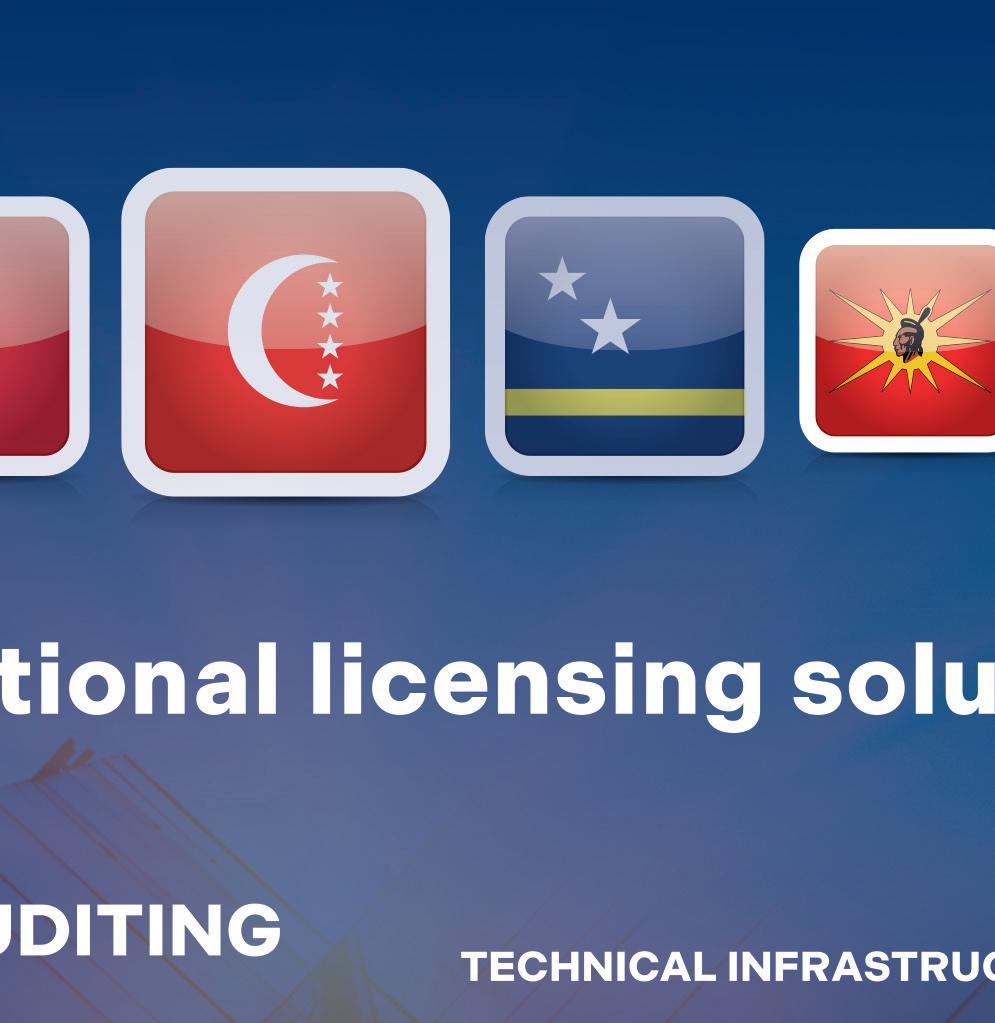










Gambling Insider contributor Joerg Hofmann , Senior Partner at Melchers Law, looks into how Germany’s gambling regulation has developed over the past 15 years, via a chronology in selected key points
15 years is a small era. Let’s take a closer look at this period. In Germany, it was an era of development – partly out of the monopoly and towards a licensing regime for almost all common forms of online gambling. Since the birth of Gambling Insider – congratulations on its 15th anniversary! – a lot has happened...
∙ To get a sense of time: 15 years ago, the iPhone 4 was released. And while one can hardly pronounce the name of the Icelandic volcano Eyjafjallajökull, its eruption in 2010 is certainly unforgettable. Equally unforgettable is the “Carmen Media” decision of the Court of Justice of the European Union (CJEU) published in the

same year. The CJEU ruled that the German gambling monopoly violated the EU freedom to provide services because it did not coherently and systematically contribute to combating gambling addiction.
∙ In 2011, a fundamental discussion about the realignment of the gambling market began at national level. Politically, the federal states reached a broad agreement on a revised Interstate Treaty on Gambling, which aimed to regulate but also open the market, especially in the sports betting sector. For the first time, a numerically limited tender for sports betting licences to
“ 15 years is a small era...Since the birth of Gambling Insider – congratulations on its 15th anniversary! – a lot has happened... ”









private operators was considered. SchleswigHolstein went even further. Germany’s northernmost federal state decided to take a path deviating from the rest of the federal states and, in September 2011, passed its own, more liberal gambling act, which provided for private sports betting and online casino licences.
∙ In 2012, the gambling act in SchleswigHolstein came into force as planned. In the remaining 15 federal states, the so-called First Treaty amending the Interstate Treaty on Gambling (GlüStV 2012) came into force on 1 July. It included an experimental clause that provided for a time-limited licensing of up to a maximum of 20 licences for sports betting operators.
∙ In 2013, the joint regulations of the 2012 Interstate Treaty on Gambling encountered practical problems, as the licensing procedure for sports betting only progressed sluggishly and was followed by lengthy legal disputes. Then, in the course of the year, there was another bombshell in SchleswigHolstein, this time in the opposite direction. Following a change of government, the state rejoined to Interstate Treaty on Gambling but allowed the previously granted licences to remain valid.
∙ In 2014, the planned granting of 20 sports betting licences in Germany came into focus. After the Hessian Ministry of the Interior had pushed ahead with the corresponding selection process and wanted to issue 20 licences, some applicants who had not been considered for a licence filed lawsuits. The Hessian administrative courts criticised the lack of transparency in the procedure, effectively stalling the process.
∙ In 2015, the Administrative Court of Wiesbaden had already expressed doubts


about the transparency and traceability of the procedure. This case law ultimately halted the process entirely, leading to a de facto standstill in sports betting regulation. The Commission has reiterated its criticism of German gambling regulations with an EU pilot procedure, the preliminary stage of infringement proceedings.
∙ In 2016, the “Ince” judgment of the CJEU (C-336/14) found that the sports betting licensing procedure did not comply with EU law and emphasised that a regulation for sports betting and online offerings that conformed to EU law must be consistent, coherent, and nondiscriminatory – something that was lacking in Germany at the time.
∙ In 2017, the second Treaty amending the Interstate Treaty on Gambling was signed by the federal states. However, because not all states ratified the agreement, it did not enter into force. On 26 October 2017, the Federal Administrative Court unexpectedly confirmed the legality of the German internet ban on sports betting and casino games, without referring the core question of EU compatibility to the CJEU. The EU Commission decided to discontinue its infringement proceedings against the gambling sector across Europe.
∙ A highly anticipated decision was handed down by the CJEU on 28 February 2018, in the “Sporting Odds” case. The provision under review – that an operator can only obtain an online gambling licence if they already hold a terrestrial gambling licence – was rejected as discriminatory. Sporadic ideas in German politics to grant online casino licences in the future only to land-based casinos had to be discarded.


∙ The year 2019 was a turning point with the agreement on the third Treaty amending the Interstate Treaty on Gambling. This temporarily resumed the so-far-stalled sports betting licensing process with a new procedure and without a numerical cap, marking the beginning of a new era.
∙ In 2020, the new sports betting licensing procedure began under the authority of the Regional Council of Darmstadt. The federal states agreed on a new Interstate Treaty on Gaming, which from July 2021 onwards was to legalise almost all types of online gaming nationwide. As of 15 October 2020, a transitional regime for online casinos came into force, allowing compliant operators to offer online casino games even before the new treaty became law without facing enforcement measures. The first German courts began ruling that gaming contracts with unlicensed online casinos were void and that players could claim back their losses.

∙ On 1 July 2021, the new Interstate Treaty on Gambling came into force. It introduced a licensing procedure for online poker and virtual slot machine games. At the same time, strict player protection requirements (such as a centralised barring system) as well as stake and advertising restrictions were introduced. The State Administration Office in Halle (SaxonyAnhalt) began handling the corresponding licensing procedures on an interim basis starting 1 July 2021.
∙ The year 2022 was one of consolidation and implementation. LUGAS, a limit file for monitoring monthly deposit limits, was introduced. Its additional activity file was intended to prevent simultaneous play at multiple operators. The Joint Gambling Authority of the States (GGL) began enforcing measures against illegal gambling and advertising. Existing sports betting licences were to be extended by the Regional Council of Darmstadt in the second half of the year beyond 31 December 2022. In the course of administrative disputes over ancillary licence conditions, a model settlement was reached in December between individual operators and the authority, intended to pave the way for a later agreement. To date, this agreement has not been reached.

∙ In 2023, the GGL began its full operational work. In Luxembourg, the CJEU is dealing with the question in case C-440/23 of whether the former German ban on online casino games was compatible with the freedom to provide services under Article 56 TFEU. The case was referred by a court in Malta. Proceedings are ongoing, with a decision expected in 2025. Numerous civil

courts used this as an opportunity to suspend pending player lawsuits until a decision is made.
∙ In July 2024, the Federal Court of Justice in Germany initiated a referral for a preliminary ruling to the CJEU (Case No. I ZR 90/23) aiming to clarify whether refund claims by players in Germany are admissible if an EU-licensed operator operated without a German licence. The court will also consider whether such a right to a refund violates the freedom to provide services if the national licensing procedure was in violation of EU law or proved to be effectively inaccessible. A decision is expected in 2025. The Regional Court of Erfurt transferred further questions to the CJEU, which may have even greater practical relevance. Schleswig-Holstein has issued its first “online casino” licences to private operators, allowing them to offer bank-holder games such as roulette and blackjack in Schleswig-Holstein. It remains the only federal state so far to have granted such licences to private operators.
∙ On 9 April 2025, the CJEU held a hearing in case C-440/23. The Advocate General’s Opinion was announced for 10 July 2025. Malta’s “Bill 55” (now Art. 56A Maltese Gaming Act), which aims to protect operators from refund claims, is also part of the legal dispute. Finally, an initial evaluation of the current Interstate Treaty on Gambling is underway.

Developments over the next 15 years are sure to be exciting. They will be characterised by the fight against the black market in Germany, which remains too large. Fortunately, we have Gambling Insider to keep us updated.

Ranjana Adhikari, Shashi Shekhar Misra & Dhruv Jadhav, gaming regulation experts and regular Gambling Insider contributors, re ect on 15 years of the Indian gaming industry
The online gaming industry in India has witnessed tremendous growth over the past decade, navigating multiple legal and structural challenges along the way. In so doing, the Indian online gaming sector has shown not just resilience, but a remarkable ability to absorb disruption, adapt quickly and thrive, demonstrating what mathematical statistician Nassim Nicholas Taleb calls antifragility: the capacity of a system to evolve and improve in the face of shocks, stress and volatile ecosystems. This growth has been fuelled by a sharp increase in mobile-first users, a robust digital payments infrastructure, greater internet penetration and a young, aspirational demographic constantly seeking new and immersive digital experiences. The Covid-19 pandemic catalysed a major leap in user engagement.
The regulatory framework has also evolved alongside the sector’s growth. Most states follow the Public Gambling Act, 1867 or have laws that address only physical gambling. Sikkim was the first Indian state to regulate online gaming by enacting the Sikkim Online Gaming (Regulation) Act 2008, which introduced a licensing regime for all online games offered within the state of









Sikkim. Thereafter, for more than a decade, no specific regulatory attention was paid to online gaming as an activity. However, due to the pandemic-propelled popularity of the sector, the Central Government recognised the need to provide regulatory clarity to the sector. Thus, in April 2023, the federal Ministry of Electronics and Information Technology (“MeitY”) introduced a new central framework for online gaming by amending the Information Technology (Intermediary Guidelines and Digital Media Ethics Code) Rules, 2021 (“IT Rules 2021”). These amendments (“Online Gaming Rules”) introduced a co-regulatory mechanism, whereby the MeitY would recognise independent selfregulatory bodies (“SRBs”). The SRBs would in turn verify whether an online real money game could be provided to the general public, as per the criteria provided in the Online Gaming Rules. In this backdrop, and in sync with and as a tribute to Gambling Insider’s remarkable 15 years of covering thought-provoking content on global gaming, we examine four prominent inflection points for the Indian gaming industry: namely (i) delay in implementation of the Online Gaming Rules and having a uniform online gaming law throughout the country; (ii) application of the Goods and Services Tax (“GST”); (iii) the draft Digital Personal Data Protection Rules (“Draft DPDP Rules”) and (iv) the potential application of the Prevention of Money Laundering Act 2002 (“PMLA”) to the online gaming sector.

ONLINE GAMING RULES:
THE PROMISED LAND OF A CENTRALISED REGULATORY REGIME


The Online Gaming Rules were meant to be the regulatory panacea for the online gaming sector in the form of a centralised regime. The Rules’ implementation required the Central Government to recognise at least three SRBs. However, till date the MeitY has not notified even a single SRB. Although reportedly at least four SRB applications have been made to the MeitY. As per news reports, the Central Government reportedly has apprehensions about (a) potential “industry influence” in the SRBs, and (b) that co-regulation may not be sufficient to regulate the burgeoning online gaming industry.

This delay in implementation is compounding the uncertainty for the industry. States are seeking to regulate through state-specific legislations and are taking differing views on the legality of games. In February 2025, the state of Tamil Nadu notified state-specific regulations imposing various restrictions on real money games, including a midnight to 5 am login ban and mandatory government document-based KYC for all users. These regulations are presently under challenge before the regional High Court and the judgement will be pronounced soon. Notably, the Central Government has submitted before the High Court that, since no SRBs have been designated, the Online Gaming Rules are presently not enforceable and consequently states can regulate online gaming within their territories. In other states like Chhattisgarh and Haryana, there is a complete lack of clarity on whether certain games are permissible or not under the respective new online gambling laws.
is contemplating categorising online gaming companies as “reporting entities” (“REs”) under the PMLA. In March 2023, the Central Government included virtual digital assets platforms as REs. This indicates the Government’s intent to extend anti-money laundering (“AML”) obligations to emerging tech sectors that handle large volumes of user deposits. In September 2024 in Paris, the Indian Government advocated for online gaming companies to be included within the FATF AML-CFT framework.

One of the most consequential developments for the sector has been the shift in how the GST is levied on real-money online gaming. In 2023, the Indian Parliament introduced a host of amendments to the GST legislations (“2023 Amendments”). The 2023 Amendments introduced the concept of “online money gaming” i.e. online games where players deposit money or money’s worth with the expectation of winning money. Previously, games of skill were taxed at 18% on the platform fee component only, while games of chance attracted 28% GST on the entire bet amount. Now, a uniform 28% GST applies to the full face value of all user deposits for all real-money online games, irrespective of skill-chance. Foreign online real-money gaming companies need to now register and pay GST in India or risk being blocked by the ISPs/TSPs on orders of the GST department. Additionally, the Central Government has taken a view that the 2023 Amendments are ‘clarificatory’ in nature and apply retrospectively since 2017. Thus, the GST authorities have served notices demanding a (mind-boggling) total of INR 1.1trn (approx. $13bn) from the sector in retrospective GST dues.
The Supreme Court of India has transferred all challenges against the 2023 Amendments to itself and is presently hearing the arguments. The SC will, inter alia, adjudicate upon (a) the retrospective GST demand notices and (b) the constitutionality of the 28% GST levy. If the decision of the Supreme Court favours the revenue, it could have a far-reaching adverse impact on the viability of the online gaming industry in India.
PMLA: WINTER IS COMING?
The PMLA forms the core of the Indian legal framework to combat money laundering. Reportedly, the Ministry of Finance (“MoF”)

As of now, game-of-chance operators are included in the ambit of the PMLA. If this proposal is implemented, online skill gaming companies would also need to comply with various PMLA obligations. These include registration and reporting suspicious transactions to the Financial Intelligence Unit-India, undertaking KYC compliances and maintaining records of all transactions for a period of five years. Non-compliance entails fines extending from INR 10,000 (approx. $117) to INR 1,00,000 (approx. $1,170) per instance of non-compliance.
For many platforms, especially start-ups and smaller operators, compliance with the PMLA could be prohibitively expensive. Most gaming companies lack the internal infrastructure to manage AML obligations and rely on costly third-party compliance providers. Additionally, certain compliances can create friction in the user journey and result in user drop-offs. The combined effect of these two repercussions could be severely debilitating for the sector.
The MeitY released the Draft DPDP Rules on 3


January 2025 for public consultation. Industries across sectors are now awaiting MeitY’s notification of the final DPDP Rules and the enforcement of the DPDP Act MeitY has assured the industry that the Government would provide a transition period of about 2 (two) years to ensure compliance.
The Draft DPDP Rules enumerated key compliances for data fiduciaries. Before a platform processes a child’s data, it must ensure it has obtained the parent’s consent. It must also verify the parent’s age using reliable credentials. For cross-border transfers, platforms are accountable for ensuring compliance with any additional restrictions imposed by the government, including controls on access by foreign agencies.
While the Draft DPDP Rules provide adequate flexibility for businesses to balance innovation while protecting user interests, certain aspects such as the manner of obtaining verifiable parental consent are still unclear and would likely depend on the evolution of industry practices.

The need for coherence and balance in policymaking for the sector has never been greater. A fragmented approach split across state and central laws would only stifle innovation. The test ahead is not just for the industry, but for the State itself: if the sector has so far proven to be antifragile, it is time for the law to demonstrate the same adaptability by moving toward a central, simple and proportionate regulatory architecture which enables the industry to grow, bolsters investor confidence and protects the end user’s interests.
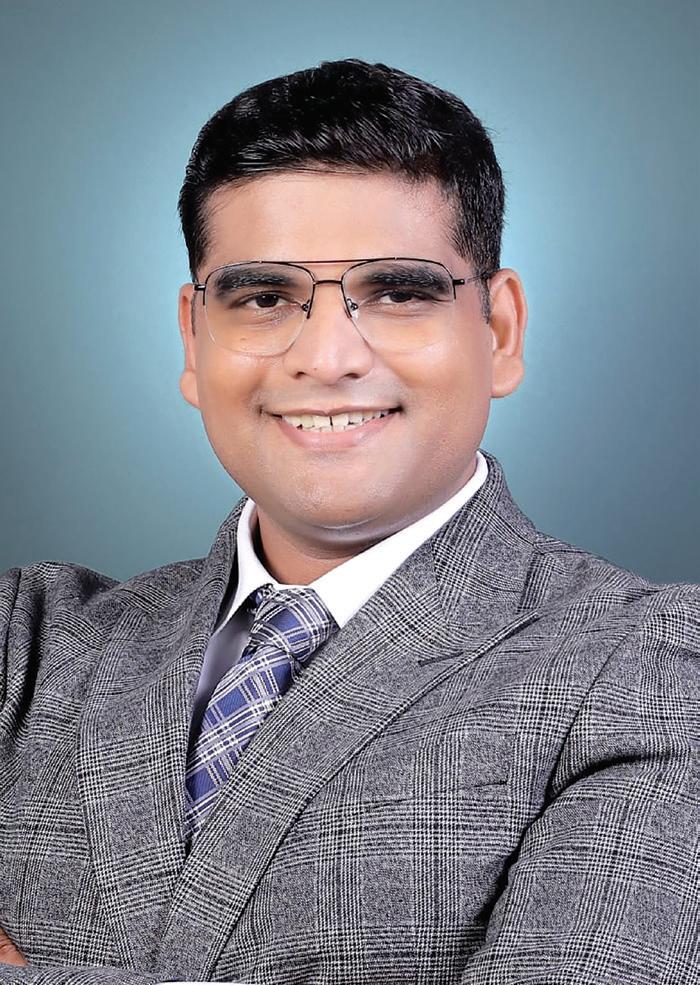


Duncan Garvie, Founder of BetBlocker and a dependable contributor to Gambling Insider in recent years, looks back at how responsible gambling has changed over time
15 years. A decade and a half. 180 months. 5,479 days. It’s gone by in a flash, but at the same time seems a lifetime ago.

15 years ago, I was just leaving teaching and laying the groundwork for the launch of ThePOGG. So much has happened since then. ThePOGG has lived, given birth to BetBlocker, died and risen as something new. It’s hard to frame all that time passing, though the face that looks back at me in the mirror every morning is a living reminder of my age.
But outside of my individual career, how has the industry changed over the time I’ve been working in it? The word that jumps most readily to mind for me is “polarisation.”
Firstly, we’ve seen a stratification of the industry. In 2010, regulation was a light-touch concept. Yes, there were some international-type regulatory agencies. And some markets, most notably the US, had for one reason or another opted out of online gambling altogether. But regulation as we know it today didn’t exist.
The last decade and a half has seen some positive steps taken, with far more substantive oversight, ensuring improved protections in terms of robust game testing, segregation and protection of player funds, limiting exploitative marketing, the introduction of third-party dispute mediation and the establishment of duty of care standards to protect vulnerable players. However, it has also seen the introduction of many points of friction. There is an objective to


protect players from themselves with the likes of betting limits, the removal of game features and the introduction of more intrusive financial checks. These changes have caused the industry to split from an amalgam of organisations with little oversight and few real differences in terms of licensing/player protections, to a market that has three distinct groupings: the licensed, the quasi-licensed and the unlicensed.

Likewise, it’s stratified consumers. The development of regulation has created choice. Do players accept additional checks and restrictions to remain within the far safer space of the licensed market, or do they chafe sufficiently at the loss of their bonus buys, bet limits and KYC checks that they are willing to take the higher risk of playing with the unlicensed market?
Years have polarised the sector, forcing both businesses and consumers to pick a side. And while I hope this is an educated decision, knowing that some players will choose the black market and there’s nothing we can do about it, I worry that market forces will ultimately drive large swathes of consumers to make high-risk decisions unwittingly.
My other role in the sector – heading up the BetBlocker project – has seen similar polarisation. 15 years ago, there was little in the way of support for those impacted by gambling harm. That statement is not intended to dismiss organisations working to support people at the time, but there were fewer of them and they had significantly fewer resources to deploy.


I’m happy to see that there has been a steady rise in funding as the culture within the sector has risen to the challenge of addressing harm. And industry funding has made a big positive difference in some markets, though still needs to mature in others. But this rise in funding for support organisations has also brought with it polarisation among the organisations working to deliver support, with some very loud voices gaining significant political traction


attacking any support service that has received funding from the industry. This has escalated so far as to have seen senior healthcare workers giving evidence to oversight committees that is either sheer conjecture or flatly misleading, to steer funding to their preferred recipients. While polarisation in the harm minimisation space is a natural result of progress, it is significantly impairing the effectiveness of the funding to deliver the best outcomes to the people the support is supposed to benefit.
If the sector is to move past the polarisation we’ve seen occur over the last 15 years, we need the big players in the industry news space, like Gambling Insider, to keep providing a platform to highlight the problems. Such niche topics are unlikely to gain mainstream media attention, so it is critical to have a healthy and functioning sector news space, who are brave enough to discuss all aspects of the issues and challenge the problems that result.











Gustaf Hoffstedt , BOS Secretary General and loyal contributor to Gambling Insider , discusses the fall of monopolies and what the next 15 years hold for European gambling
Fifteen years ago, the European gambling market looked very different. State monopolies dominated, online gaming was in its infancy and regulation was more about control than consumer protection. Since then, we’ve seen waves of reform, digital transformation and a growing recognition that gambling – when properly regulated – is a legitimate and valued part of the entertainment landscape.
Gambling Insider has chronicled that journey every step of the way. Staying relevant in a sector this fast-moving is no small feat. It takes adaptability, sharp instincts and a deep curiosity about where the market is headed. That Gambling Insider is celebrating 15 years is a testament to exactly those qualities.
But anniversaries aren’t just for reflection –they’re a chance to look ahead.
Inspired by the words of IKEA founder Ingvar Kamprad – “Most things remain to be done. A glorious future!” – I’d like to share five predictions for what the next 15 years could bring for Europe’s gambling sector.
But reform shouldn’t stop with large or mid-sized markets. Smaller countries like Iceland and Luxembourg must also modernise. Every European consumer deserves the same protection and choice. Until all jurisdictions adopt non-discriminatory licensing systems, the work remains unfinished.

Europe’s remaining gambling monopolies are living on borrowed time. We’re witnessing a steady shift toward licensing models where public and private operators compete on equal terms under clear, consistent rules. Finland is already moving in this direction. Even long-standing defenders of state control, like Norway, will eventually have to adapt or fall behind.





Introducing a licensing system is one thing. Making it comprehensive is another. In many countries, key verticals like lotteries remain monopolised. Elsewhere, products like online casinos or live betting are still banned for private operators. These inconsistencies stifle innovation and restrict consumer choice. In the next 15 years, I believe we’ll see licensing frameworks that cover the full gambling spectrum. Governments won’t be able to justify holding on to legacy restrictions while inviting competition elsewhere. Innovation thrives in competitive, open markets –regulators will have to catch up.


data-driven – placing consumer protection at the forefront.
Such a system would ease legal conflicts, reduce regulatory uncertainty, and make controversial laws like Malta’s Bill 55 a thing of the past. A unified framework isn’t just an aspiration – it’s a necessity.

State-owned gambling firms won’t vanish because governments have a moral awakening about being both referee and player. They’ll fade because they’ll be consistently outperformed by faster, more customer-focused private operators. Many governments will try to hang on, lured by short-term revenues. But those revenues are already shrinking. The wise move? Exit while there’s still value in the brand and user base. Because the market won’t wait, and the value of these assets won’t be higher tomorrow.
REBUILDING TRUST IN THE INDUSTRY

these assets won’t be higher tomorrow.











If the EU emerges stronger from today’s







But perhaps the most important challenge of the next 15 years isn’t regulatory – it’s reputational. Trust in the gambling industry has eroded. And while some of that criticism is warranted, much of it ignores the truth that, for most people, gambling is a form of entertainment. It’s excitement. It’s fun. And it plays a positive, legitimate role in many people’s lives.







to accept another 15 years of fragmented clash with the principles issuing licenses valid and EFTA. This body transparent, and

If the EU emerges stronger from today’s geopolitical challenges, it will be less inclined to accept another 15 years of fragmented gambling regulation. Too often, national rules clash with the principles of the internal market. The logical next step is bold: a pan-European gambling authority issuing licenses valid across the EU, EEA, and EFTA. This body should be independent, transparent, and

Those stories are rarely told – but they need to be. As new products emerge and responsible innovation continues, we have a chance to reshape the narrative. Our industry can be a model not just for growth, but for responsibility, transparency, and consumer care.
If any sector is capable of leading Europe toward a more innovative, forward-looking future – one defined by creativity, tech, and entrepreneurship –it’s ours. Let’s rise to the occasion.











Regular Gambling Insider contributor Willem van Oort, who is the Founder of Gaming in Holland & Gaming in Europe, looks back on 15 years of gambling regulation in licensed markets



Looking back at the last 15 years of gambling in the Netherlands, the biggest development has undoubtedly been the regulation of the online market. Those familiar with Gambling Insider’s reporting will recall that it took a very, very long time. The Government started drafting what would become the Remote Gambling Act back in 2011, but it would take a decade – until October 2021 – before the Act would finally enter into force. It was quite a journey!
Of course, the current Government – with broad parliamentary support – is already working on a fundamental revision of the






Remote Gambling Act. A revised draft bill is expected to be published in 2026. It certainly appears that – in the Netherlands, at least –gambling legislation is never done.
One thing that has struck me, watching the Dutch as well as an increasing number of other markets getting regulated in the past two decades or so, is how much responsible gambling has become “a thing.” Fifteen years ago, this was definitely a niche topic, although perhaps somewhat less so in the Netherlands, due to its unique history.
At present, responsible gambling is topof-mind throughout the entire industry – or at least the regulated parts of it. I think this reflects a shift from online operators being pioneers, making up things as they go, to major, well-established companies. There is now far more awareness that our industry operates in a broader social and political context that implicitly (sometimes even explicitly) demands sustainable relations between operators and players. The more popular online gambling becomes, the more paramount sustainability and player protection become. There is only so much societies are willing to tolerate. Naturally, the flip side of this is that political leaders also have a responsibility to not get caught up in unjustified moral panics.



Building on that last observation, there is, I feel, a distinct danger of overregulation. Ten years ago, nobody believed that the black market had a strong future. That has certainly changed in recent years, mostly because regulated markets are increasingly falling behind when it comes to their ability to compete with illegal alternatives. Generally speaking, increased restrictions on legal offers should be offset by a commensurate increase not just in enforcement efforts, but rather in enforcement outcomes. So far, I am not seeing that.
To some extent, regulators still need to catch up with how much the illegal market has changed. For the most part, we are not dealing with publicly listed companies based in Gibraltar or Malta anymore, where there is some hope that a regulatory fine can be collected. Nowadays, “offshore” usually means a tax haven filled with shell companies and untraceable owners. And how many regulators regularly monitor services like Telegram or Kick? Of course, this is not meant as a dig against regulators. They are limited in resources and powers. That is not going to change.
Perhaps B2B licensing can discourage suppliers from providing their products to black-market operators. And payment providers have been in the crosshairs of regulators for quite some time already. Thus, I am not saying there is nothing regulators can do, but without an attractive legal offer, regulators will, without a doubt, get overwhelmed. There is no meaningful victory in an endless game of whack-a-mole.


In other words, I believe that a sufficiently attractive legal market is necessary to create the kind of overall environment where players, and consumers in general, are sufficiently protected. One additional reason why the black market is becoming increasingly popular is the growing demand for crypto-based gambling. I am of the hope that at least some jurisdictions can introduce regulation that would allow verified customers to use cryptocurrencies for gambling purposes.
Having said all this, I am very happy that over the past 15 years Gambling Insider has offered space for discussions such as these. All this in addition, of course, to its regular coverage of our key markets including the Netherlands, Spain and Germany. I certainly hope there will be at least 15 years more!







Paul Newson, Principal at Vanguard Overwatch and trusted Gambling Insider contributor, gives his thesis on where Australia stands after a crucial few years of regulatory change
When assessing the crowd of issues confronting Australia’s gambling sector – many of which flare with uncanny regularity around electoral cycles, yet are otherwise dismissed as too complex or politically costly – it’s difficult to whittle down to the most pressing and relevant matter for a short piece.
Among the policy debates, few have generated as much attention as the deluge of gambling advertising that periodically agitates public concern, and the prolonged debate over proposed reforms reflects the broader struggle between policy ambition and political pragmatism. The You Win Some, You Lose More parliamentary report recommended a phased ban on online gambling advertising, yet attention gravitated toward a call for a comprehensive, blanket ban across all media. Despite broad community concern, progress stalled in the absence of political conviction, slowed by industry lobbying and competing interests.
platforms, live sport and public spaces. In contrast, pubs, clubs and casino operators remain heavily restricted in their ability to promote gaming. Yet the broader industry continues to absorb collective blame, even though the lion’s share of advertising-related resentment is stirred by corporate wagering brands successfully fusing gambling with sport.


The Government has been reticent to act decisively, even on scaled-back proposals, and deferred further consideration until after the most recent federal election, despite widespread stakeholder unease. While frustration with gambling advertising appears universal, it is largely driven by the saturation of marketing from corporate bookmakers – characterised by cheeky, sports-themed promotions and omnipresent branding across streaming
Another issue buoyed to prominence by alignment with the election cycle has been cashless gaming and the shift towards mandatory carded play – reforms effectively imposed on casino operators. The mandatory carded play in the casino environment has triggered concerns around competitive neutrality, with casinos subject to significantly more restrictive arrangements than pubs and clubs, which continue to operate the overwhelming majority of gaming machines. To put this disparity in context, The Star Sydney is capped at 1,500 gaming machines, Crown Sydney is not authorised to operate gaming machines at all, while some 90,000 are distributed across pubs and clubs in NSW.







Without diminishing the relevance of other regulatory issues, the most immediate and pressing imperative is the uplift in AML/CTF capability and compliance across the gambling sector. While the deficiencies in casino AML arrangements –exacerbated by historic leadership failures and skewed incentives – rightly triggered a reckoning and substantial remediation, particularly in the case of Crown, serious shortcomings remain in the wider industry. In fact, following intensive uplift efforts, Crown may now represent a leading example of financial crime capability and a stronghold against money laundering –a transformation that underscores what is possible when leadership, investment and accountability converge.
If the enforcement action against Tabcorp and the subsequent intervention at Crown weren’t already a clear warning, AUSTRAC’s
ongoing investigations into pubs and clubs should be a wake-up call for senior leaders. As AUSTRAC CEO Brendan Thomas recently stated: “Your services and the gambling industry have been subject to this regime for many years now. It is your responsibility to comply with the law.”
The message is unambiguous: compliance is not optional, and the era of regulatory patience is over. Thomas has also warned against misplaced reliance on third parties, stating: “You can outsource the work, but not your legal liability.” This observation cuts to the heart of a recurring vulnerability in the clubs and pubs sector – a dependence on off-the-shelf AML templates and generic advisers, which has fostered false confidence and encouraged a ‘tick-and-flick’ mindset.
Perhaps most tellingly, Thomas has cautioned: “If you have the idea that AUSTRAC will continuously educate and educate and educate and then maybe take action years later – you are mistaken.” The time for delay and complacency has passed. What’s needed now is visible, proactive leadership, tailored programs and a genuine commitment to financial crime resilience across all gambling channels.

A final observation on perhaps a more insidious challenge: the spectre of regulatory hostility and emergent anti-industry sentiment. One of the lasting consequences of the recent Royal Commissions has been the unshackling of regulators who were previously unduly constrained – not so much by industry capture, but by design underwritten by political inertia and the perceived risks of wading into contentious policy debates. With the gambling industry long embedded in the political apparatus, effective oversight was hobbled and reform often demanded more political capital than governments were willing to spend.

The recent casino-focused Royal Commissions laid bare serious leadership and governance failures, rightly prompting demands for more effective and independent regulatory



oversight. That shift was both necessary and overdue. But in the wake of these reforms, there is a sense that political oversight and accountability have receded too far. While greater regulatory independence is a welcome development – particularly when it fosters rigorous, proportionate oversight focused on integrity, financial crime and gambling harm – it also carries risks. A creeping expansion of regulatory mission, at times marked by activist tendencies and an adversarial stance, threatens excessive regulatory burden and sector sustainability. It is difficult to identify another sector in which operators may routinely navigate commercial indifference or implicit hostility from their regulators.
As Gambling Insider celebrates 15 years chronicling the sector’s story and transformation, Australia’s gambling landscape stands at a critical juncture. The next phase will demand not only regulatory refinement but also renewed leadership – capable of balancing commercial vitality with integrity, sustainability and public confidence.

The gambling sector is not central to the national story, yet it plays an important role in Australia’s economic and social fabric. From the glitz and global pull of integrated casino resorts that drive tourism and enliven destination cities, to the more modest but deeply embedded contributions of pubs and clubs – creating dining and entertainment experiences, supporting local sport, strengthening social cohesion and generating employment – this is an industry that warrants robust but balanced regulation. It deserves leadership that maintains a vigilant eye on potential harms while also acknowledging and celebrating its contributions.







Paul Newson is a Principal at Vanguard Overwatch, and the Founder of the gambling law and regulation conference Regulating the Game. Paul is a Patron, past President and Trustee of the International Association of Gaming Regulators. He previously served as Deputy Secretary within the NSW



Department of Industry, administering gambling, liquor, and racing public policy and regulation in New South Wales. Paul was also a Trustee of the NSW Responsible Gambling Fund. Paul has a Bachelor of Arts (Politics), a Bachelor of Laws, a Master of Legal Studies and a Master of Law & Management.




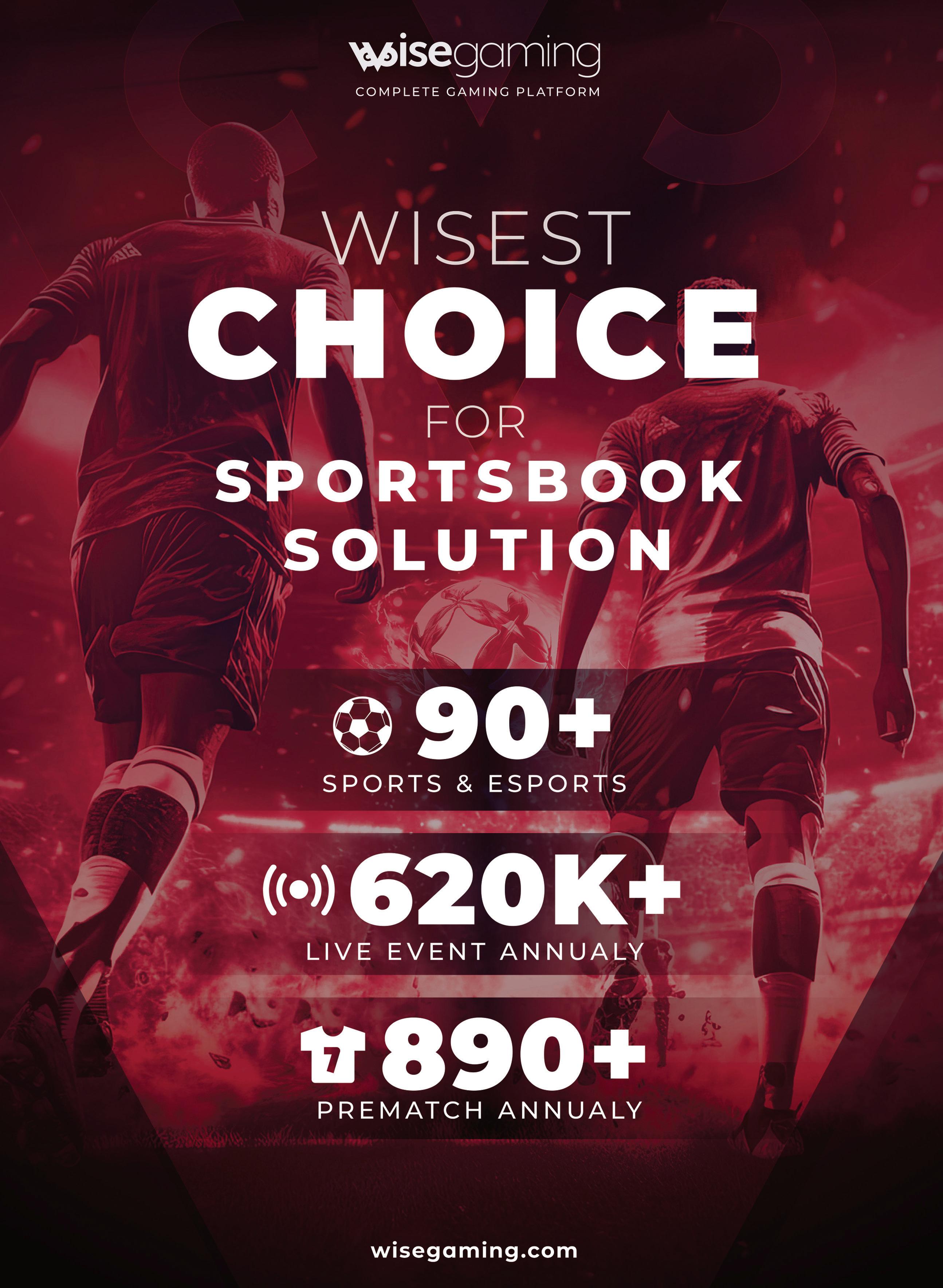



Industry veteran Becky Liggero Fontana re ects on the last 15 years of gaming, the maturing of the sector and its events, and bumping into Gambling Insider along the way...
The first time I met Calvin Ayre, he was coming off the stage at his 2005 Bodog conference the morning after the best party I’ve ever attended in my life. What an industry, I was hooked! A few months into working in iGaming, here I was in Las Vegas rubbing shoulders with industry pioneers, enjoying a Bodog party at Rain with A-list actors, sports stars and Cirque du Soliel performers, followed by a VIP afterparty in the Real World Suite at the top of the Palms hotel.
Fast forward five years and I was recruited by Calvin to serve as the Lead On-Site Reporter for his iGaming industry media website, CalvinAyre.com. The idea was to capture event highlights and interviews on camera, providing fresh video content on a regular basis – a cutting-edge concept back then. It was also right around this time when I first met the Gambling Insider team, a fabulous group that always welcomed CalvinAyre.com with open arms to film at their annual Global Gaming Awards
Back in these early days, industry events were different. CEOs and Founders were roaming freely around the conferences and events, giving interviews and hanging out at the networking bars, no PR reps to shield them, no share prices to worry about. Scantily clad models were all over the booths, parties, awards – everywhere! And those parties…
The CalvinAyre.com Mad Max Post Apocalyptic launch party and the Seven Deadly Sins Party, the Golden Palace GiGse parties, the three Bodog Conference parties, the 20+ Fire & Ice parties…my list could go on and on.
While the industry has matured and professionalised since then with budgets reduced and redirected, there are still big parties to attend, but they do not have the same magic. It’s not possible for everyone to attend one official, over-the-top party anymore, there are simply too many of us! The tight sense of community has faded over time, but fresh blood coming to the space is not a bad thing.

Anyone who was working in the industry 15+ years ago remembers the over-the-top parties that came along with each conference, with budgets so big they would make your eyes water.







Another big change is regulation. Back when I started working in the space in 2005, we were self-regulated with industry watchdogs keeping us in check. Now there are so many regulations to abide by across so many jurisdictions, we need compliance teams and conferences dedicated solely to compliance to keep on top of all the rules and avoid enormous fines.
The same goes for the blockchain and crypto space. I remember when Bitcoin hit the iGaming scene around 2012, ironically being used as a payment method to circumvent regulations in some cases. Now, digital assets such as Bitcoin and payment service providers using digital assets are regulated themselves.


With consolidation, M&As, IPOs, regulations and more, it’s difficult for the little guys to survive unlike the early days. But a more tightly regulated space along with companies going public attracts more talent. While many of us enjoy reminiscing about the crazy parties from the early 2000s, we’re also 15 years older and enjoy entertainment in a different way. Diversity is now a big focus, and the industry is not as male-dominated as it once was. The days of endless models decorating events have been replaced with more appropriate attractions.
Over the past 15 years I transitioned with Calvin from iGaming to the Bitcoin and blockchain space and gradually shifted my reporting focus, but where the two industries overlap is my favourite place to be. There is enormous opportunity for blockchain tech in iGaming, everything
from instant, peer-to-peer transactions to micropayments to responsible gambling initiatives and everything data transparency. We are not there yet, but with so many talented professionals flooding the iGaming space who are growing up with frontier tech, it’s bound to happen soon.

While I’m not the roving reporter at iGaming events as I once was, I still consider myself an iGaming lifer and enjoy attending a handful of events every year as a moderator and seeing my friends in the space on a regular basis. The rise of technology like blockchain and AI will forever change the way we do things digitally and the iGaming world is no exception- it is an exciting space to watch.
I am grateful for industry publications like Gambling Insider who continue to keep us informed over the years, keep the spirit alive and highlight those who have brought us to where we are today. Happy 15 years and many more to come!





Brazilian Gaming Law specialist Neil Montgomery re ects on 15+ years of working within the now-booming Brazilian market, as well as re ecting on changes within the wider gambling landscape



Over the years, I have had the pleasure of sharing my views with Gambling Insider on the development of the Brazilian legal framework for the gaming industry. For me, the publication is one of the most reputable media sources for the world’s gaming industry and has obtained exactly that position within the landscape over the past 15 years. Externally, at least, the key lies behind always providing insightful and pragmatic information on gaming markets worldwide, with contributions from the world’s leading professionals in the sector. After a number of recent contributions, I had the delightful opportunity to visit their HQ in Shoreditch, London and was impressed with the vibrant environment of this talented group of journalists and media specialists.
Next year, I will have been a lawyer for 30 years in Brazil. For 20 of those years, I’ve dedicated myself to the gaming industry. When it started, nobody was talking about gambling in Brazil. It was an area where there had been prohibition for nearly 60 years since the 1940s. There was a comeback at the beginning of the year 2000, when bingo was allowed for a very short spell, but as many bingo operators still
say to this date: one day they went to sleep as entrepreneurs and woke up as criminals once games of chance became outlawed.
Really, it was only in 2018 that sports betting was legalised as a form of lottery – but different to the rest of the world where sports betting is not a form of lottery, in Brazil, to get it legalised it had to be made into a form of lottery and this 2018 law said it had to be regulated within four years. Those were the years of the Bolsonaro administration. At that time, as a lawyer, I was consulting more on regulatory developments and legal developments. It was very much this way for the 10 years prior, too. There was no real licensing and no litigation.








When I started 20 years ago there were discussions that were more related to land-based casinos; it was common for Brazilian players to go overseas, play and become indebted. They thought in Brazil they would be safe; however, foreign land-based casinos managed to get the Supreme Court – which at the time was responsible for approving foreign judgments –to enforce convictions against those Brazilian players. Then came the 2018 law, followed by the 2023 law, which legalised gaming as well as a form of lottery – supplementing the 2018 law, and the type of work I started to do began to change. We took on the licensing process both at state and federal level and started helping clients to apply for the relevant licences and dealing with all the compliance issues.
That brings us up to 2025. Now, the day-today operations include not only regulatory, but also tax, employment, contracts, corporate. Of
course, 20 years ago we didn’t have online. It was just land-based. The funny thing about Brazil is that, different to the rest of the world, we legalised online first, but land-based continues to be prohibited. Other countries, of course, are more traditional and started with land-based many years ago and then legalised online.


Broadly, we’ve already seen a monumental evolution worldwide. We also have seen something interesting in Brazil regarding the difference between games of chance and games of skill, which has changed over the years. There have been certain games which traditionally had been seen as games of chance, and therefore were historically prohibited within the criminal contravention law had.
Elsewhere, there has been a proliferation in games of skill such as poker, which is probably the best example – but more recently fantasy sports, as well. I do think the Brazilian market has become more mature over the years. However, it’s still a market where there are very few experienced gambling lawyers. In 2024, when widespread regulation was confirmed –there were many firms which claimed that they were specialists, but they quite honestly lacked the track record. There are very few who have been within the gambling space for a long time and have the track record. But this will definitely change soon – as we can see this will become a market that will generate a lot of work not only to in-house counsel, but also to external council.
Many Brazilian firms are now specialising and the Brazilian Bar Association, in many parts of Brazil such as São Paulo and the Brasilia Region, have their own gambling law committees within the the bar association. This, no doubt, will provide work opportunities to graduates who want to become lawyers and pass their bar exams. So there is now a totally new sector of the economy to to work in.
When it comes to gambling over the years, Brazil has been quite insular not only because of the lack of regulation, but also because of the sheer size of the nation’s market and the wider Brazilian population. Now, of course, it’s poised to become – if it isn’t already – the third-biggest market in the world, as well as one that is both highly attractive and collaborative within the global landscape. Its cataclysmic rise is representative of the wider explosion of the global gambling industry. Fifteen years ago, nobody would have guessed everything that lay ahead and, if it was an exciting time then, it’s certainly an exciting time now.



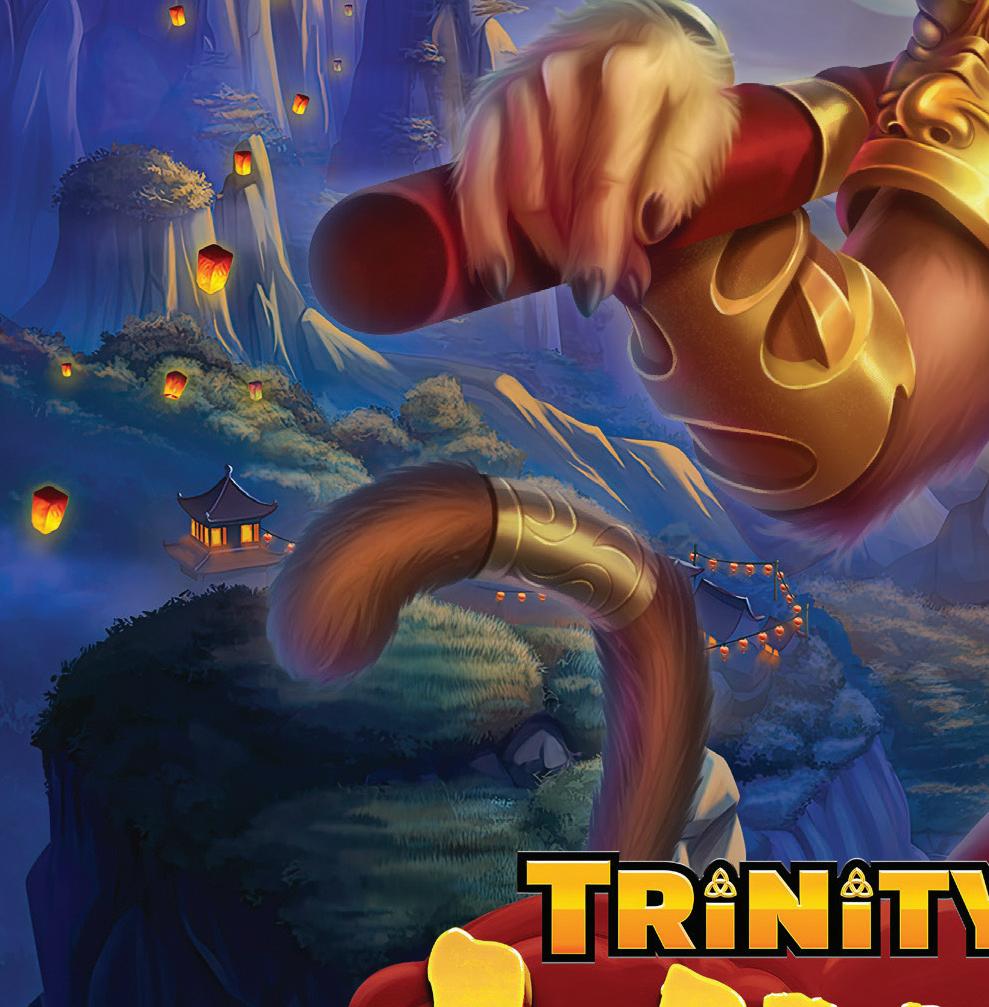




















What is being done to prevent underage gambling – and ensure teenagers are educated to gamble responsibly when they are of age? Gambling Insider’s Megan Elswyth speaks with Spillemyndigheden and Ygam to nd out more

Anders Dorph, CEO, Spillemyndigheden (Danish Gambling Authority/DGA)
How do you feel regulators and charities could work through the stigma of talking to children (or young people) about gambling to better protect them?
The DGA prioritises making information accessible to help inform and inspire parents and other professionals to address gamblingrelated issues with children and young people. An even greater priority is ensuring that these conversations are conducted in a way that young people can relate to – respectful, engaging and free from stigma.
Parents can find inspiration on the platform StyrPåSpillet (ControlGambling), which offers videos and podcasts, among other things. They can also seek guidance through the DGA’s National Gambling Helpline, StopSpillet (StopGambling).
If gambling education was widely introduced in schools or universities, do you think there would be retaliation from parents (and has there been from any workshops so far)?
The DGA conducts approximately 100
presentations every year at upper secondary schools, informing about gambling mechanisms, algorithms behind RTP in betting and casino games, and where to get help if it gets out of hand. So far, no parents have had any negative reactions towards these interventions.
What kinds of things did you find worked in this campaign (such as humour), and what did not?
We found that humour and absurdity worked well in our One-Armed Bandit campaign because it mimicked the content our target audience (children and young people between 14-17 years old) are accustomed to engaging with on eg social media. This was also in part why we

9/10 content creators promoted BC Game even while it was declared bankrupt, lost its Curaçao licence and removed its UK white-label website
chose influencers as a channel to get our audience engaged with our campaign since social media accounts for a large part of our target audience’s media consumption. Also, the influencers we chose to work with could provide a personal view to the campaign to make it feel relevant to the audience.
What could other regulators or charities learn from this campaign, if they wished to create similar ones in the future?
We believe the success of the campaign can be attributed to the fact it was made on our target audience’s terms. Working on this campaign, we learned that research is key to understanding your target group, and
without it we couldn’t have tailored the campaign to hit so well with our audience. It was from the surveys we made in advance that we learned about young people’s opinion of gambling, their gambling practices and how they wanted us to approach them with a responsible gambling message.
So the entire campaign was built on a solid empirical foundation that made it easier to make choices and commit to them during the creative process. Equally important, we were not afraid to test the limits. We took an unorthodox approach to the campaign to catch and hold our target audience’s attention, but we were constantly aware of the balance between showcasing unwanted behaviour to prevent it and encouraging it.

3 out of 10 children surveyed had used VPNs to access gambling products

62% of children admitted to regularly watching gambling content through websites and apps like Youtube, Kick, Twitch, TikTok, Instagram and Snapchat

Only 10 out of 194 people asked could identify regulated casinos apart from unregulated ones
How do you feel regulators and charities could work through the stigma of talking to children (or young people) about gambling to better protect them?
Collaboration is key, and charities play an indispensable role in preventing gambling harms and safeguarding young people. Education and early intervention are critical components of harm prevention.
Charities working in the gambling harms sector in the UK are fortunate to be made up of experienced professionals, individuals with lived experience and highly qualified specialists. This combination enables them to deliver some of the most informed, evidence-based resources and interventions – helping children
and young people understand the risks associated with gambling and recognise the signs of harm. This is one of the most effective ways to break down stigma and build resilience against gambling harms developing later in life.
If gambling education was widely introduced in schools or universities, do you think there would be retaliation from parents (and has there been from any workshops so far)?
Ygam and others have long advocated for comprehensive schemes of work on gambling harms in schools, and our resources are purposefully aligned with the latest curriculum. We also know that parents overwhelmingly support our calls for gambling harms to be embedded into school education, just as other risky behaviours are. A 2024 Mumsnet survey
commissioned by Ygam found that 82% of parents want schools to deliver education on gambling harms.
Parents are increasingly aware of the safeguarding concerns linked to online safety –where gambling can naturally become part of the conversation. We regularly receive feedback from parents and professionals alike, highlighting the need for Ygam’s work and the positive impact it has on both their professional practice and family life. That’s why we strongly advocate for a wholeschool approach, where parents and carers are supported to continue the conversation at home. When schools and families work together, education becomes more impactful – reinforcing key messages, encouraging open dialogue, and helping to build lasting resilience among young people.
As you focused on students in university, do you believe it would be effective to introduce workshops during secondary school, so that young people are prepared before leaving for university?
We deliver our CPD training to thousand of secondary school teachers every year who in turn deliver age-appropriate lessons and resources to student at every stage of the journey through secondary school. It is crucial to educate secondary school students about gambling harms before they reach the legal gambling age of 18, as this is a formative period when many young people begin to explore risk-taking behaviours and develop lifelong habits. Without early education, they may enter adulthood without a complete understanding of the risks associated with gambling, including addiction, financial harm, and mental health issues.
However, university students are a key group for us as they are four times more likely to experience gambling harms compared to the general population. With increased independence, greater financial responsibility, and the desire for social acceptance, students are particularly vulnerable to gambling harms. We have recently launched a student campaign entitled: Silence the Stigma which aims to help students recognise the signs of gambling harms and start crucial conversations with their peers and friends.
Celebrities have a strong appeal to children (and young people) in marketing, could there be a use for influencers when it comes to gambling safeguarding?
Some of the biggest streamers and influencers in the world, popular with young people, have landed major sponsorship deals with gambling operators and gambling is often glamourised in this way. We have already begun exploring


collaborations with social media influencers and content creators who have strong followings to help amplify our key educational messages around gambling harms. We plan to expand this work further, ensuring that social media is used as a force for good. Given the platforms that young people are using and engaging with, it’s essential that we meet them where they are – adapting our communications strategy to align with their behaviours and preferences.
What do you think the most important step is when it comes to protecting children (and young people) from gamblingrelated harm?
We believe education and early intervention play a central role in effective harm prevention
strategies – particularly when it comes to safeguarding children and young people. Education is a powerful tool for building awareness, resilience, and informed decisionmaking. As technology and the gambling industry continue to innovate and evolve at pace, there are growing knowledge gaps that must be addressed.
However, education alone is not enough. It must be accompanied by evidence-based policy, strong commitments from government, and action from the gambling industry to prioritise safeguarding. Safeguarding young people must be a priority for all stakeholders, and only through collaboration and a joined-up approach can we truly maximise our collective impact.
49% of university students gambled in the past 12 months

4 in 10 students who gamble say gambling has affected their university experience with financial, social and academic impacts identified

When asked whether they were aware of support from unis for gambling, 53.08% of all said yes, while 44.08% said no (2.83% prefer not to say)

Male students were more likely to gamble to make money (50%) and because they enjoy the risk (23%), while female students were more likely to play for fun with friends and family (28%)












Keith Seisun, former Malta Gaming Authority (MGA) systems auditor and current Head of Licensing at IGA Group Malta, o ers a balanced perspective on the sustained value of a Maltese licence versus the alternatives
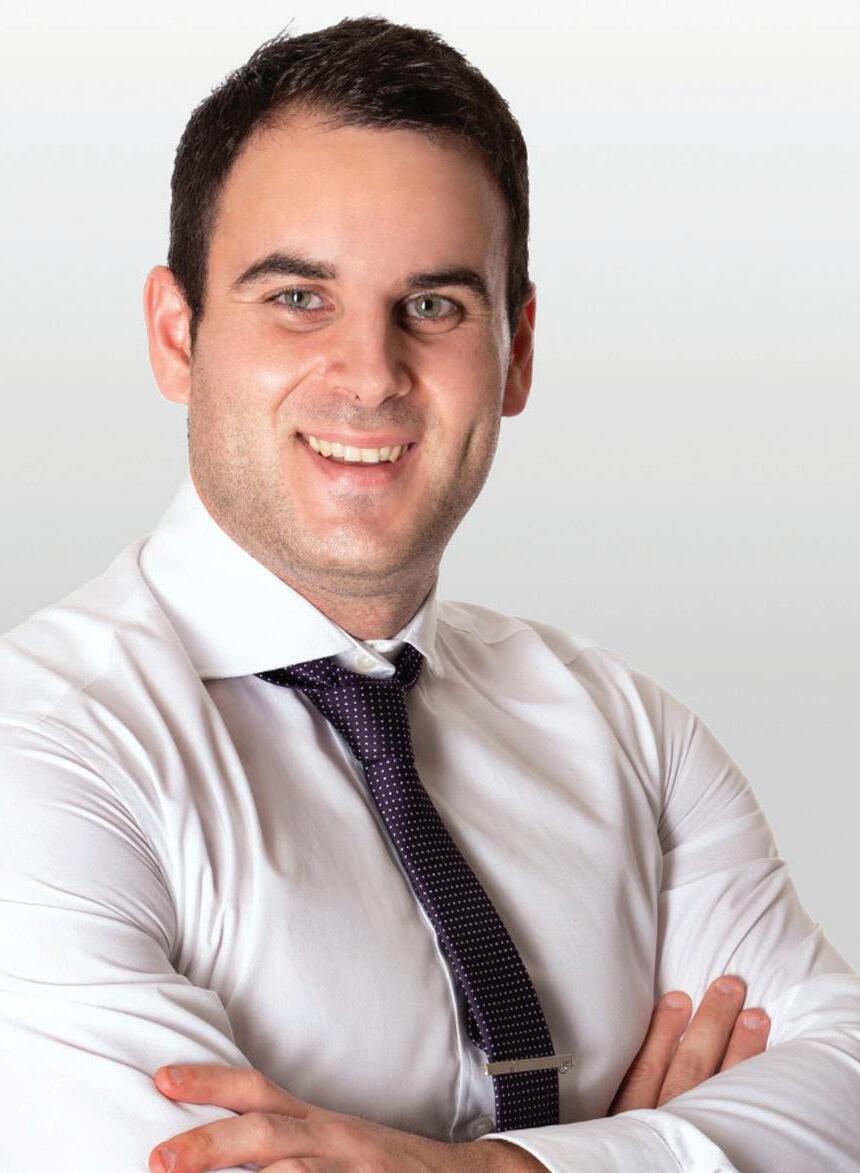

From the establishment of the Lotteries and Gaming Authority in 2001 to becoming the first EU state with a dedicated remote gambling framework in 2004, and more recently launching blockchain and cryptocurrency initiatives like the Sandbox Framework for Innovative Technologies in 2019, Malta has consistently been at the forefront of the industry. Over the years, the country has developed a mature iGaming ecosystem, featuring a skilled workforce with expertise across all sectors, an advanced technological infrastructure and a businessfriendly environment supported by a top-tier network of service providers and industry specialists.
The MGA licence is widely regarded as the gold standard across the iGaming sector. Trusted by players, financial institutions and industry stakeholders alike, it is frequently referenced by other regulators as a benchmark for best practice. The high regard with which the licence is viewed is well-earned, as obtaining an MGA licence is a demanding process necessitating significant time, effort and expense. Maintaining the licence requires strict adherence to anti-money

laundering, know your customer and customer due diligence regulations.
While compliance with these standards does involve higher costs, it also comes with tangible commercial benefits. MGA-licensed operators often find it easier to attract investment and secure partnerships with reputable game providers and payment processors on favourable commercial terms. The enhanced credibility that comes with an MGA licence also grants licensees access to banking institutions within the European Union, helping them meet the increasingly stringent risk assessments applied to iGaming businesses. Probably the most significant draw for businesses is Malta’s highly attractive tax system, which when correctly implemented, can effectively reduce the tax burden for iGaming companies to as low as 5%.
While a Maltese licence should theoretically provide access to the European market, leveraging principles outlined in the Treaty on the Functioning of the European Union, particularly the freedom to provide services (Article 56), this is not always the case in practice. A growing number of key European





markets have transitioned to domestic licensing requirements. Countries such as Germany, the Netherlands, Sweden, Italy and the UK all require that iGaming operators obtain a domestic license to offer services within their borders.
Although the Malta Gaming Authority (MGA) does not inherently restrict the markets its licensees can target, operators are ultimately responsible for ensuring they comply with all local regulations wherever they operate. While Maltese courts have, in certain instances, upheld the rights of their licensees against actions in other EU member states, these rulings do not negate the necessity of securing local licenses in markets where they are required.
Despite the historical strengths and ongoing advantages of the MGA licence itself, the current iGaming landscape presents MGA licence-holders with a complex array of challenges. Recent data shows a declining number of licensed gaming companies and a reduction in new player registrations. Rising compliance requirements, increasing operational

costs and heightened competition from emerging jurisdictions are creating significant headwinds for operators.
Licence holders are faced with strict obligations regarding customer due diligence, transaction monitoring and the reporting of suspicious activities. These responsibilities demand continuous investment in technology, skilled personnel and staff training. Player protection has become a central focus, with the MGA requiring operators to implement systems designed to identify and support vulnerable players. Tools such as self-exclusion, deposit limits and reality checks must be in place, supported by advanced monitoring technologies and comprehensive staff education.
GDPR compliance imposes significant obligations on Maltese licence holders, including strict data governance, enhanced security protocols and in many cases the appointment of data protection officers. At the same time, marketing regulations continue to tighten around responsible messaging and the targeting of vulnerable individuals. Beyond compliancerelated obligations, the overall cost of operating under a Maltese licence is rising. Licence fees, gaming taxes, key functions and general
operational expenses have seen significant increases and continue to place pressure on operational budgets. These challenges are further compounded by persistent inflation trends across the eurozone, which continue to erode margins and intensify cost pressures.
Perhaps the most consequential shift is the intensified competition from other licensing jurisdictions. While local licensing is diminishing the reach of an MGA licence within the EU, emerging jurisdictions such as Anjouan or Tobique actively market themselves to start-ups and smaller operators as offering lower initial costs, simpler application processes, quicker market entry and zero or near-zero gaming taxes, directly addressing the pain points associated with more established and regulated frameworks.
The MGA has acknowledged these shifts in its enhanced oversight strategy for 2025, focused on risk-based resource allocation and increased collaboration with operators. The Authority is also currently conducting supervisory meetings aimed at better understanding the operational flows of their licensees. During these meetings, a number of licensees have expressed concerns that costs and compliance requirements are becoming prohibitive, to the point where they are considering selling or surrendering their licence.
Amid these pressures, many operators are reassessing their strategies in favour of a multijurisdictional approach, selecting jurisdictions according to their risk profiles and compliance capabilities. In practice, this often means securing licences in more accessible or less stringent jurisdictions – such as Anjouan – to accelerate market entry and generate early revenue while building the credibility and capabilities required to operate in regulated markets over time.
Most pursue a two-pronged approach, concurrently working towards obtaining an MGA licence, suggesting that a portfolio of licences has become a clear strategic necessity. While emerging jurisdictions offer clear tactical benefits, their current regulatory leniency is best viewed as a window of opportunity rather than a long-term advantage. Curaçao’s overhauled legislation not only mirrors Malta’s original framework but will most likely follow a similar trajectory, gradually implementing stricter controls and higher compliance standards over time.
Despite growing competition from emerging jurisdictions, the MGA licence remains a valuable asset, especially for tier-one operators. As regulations evolve further, holding an MGA licence will likely continue to provide long-term benefits, particularly for operators targeting highly regulated markets, with a focus on long-term credibility.
Yes, it is costly and complex. But it remains relevant.













Gambling Insider contributor Jon Bryan asks: why aren’t limits on betting adjusted due to in ation?
April is the month when a lot of products go up in price. For individuals and employers in the UK, everything is costing more. Employers are faced with a rise in National Insurance contributions, an increase to the minimum wage and energy costs have gone up again. For families and individuals, there is an increase in council tax, water rates, energy costs and more.

Jon Bryan



April was also the month we saw stake limits for online slots being capped at £5 ($6.65) a spin (and £2 a spin for 18–24-year-olds from next month). This made me think about the controversy that first got me involved in discussions around gambling: the changes to fixed-odds betting terminals (FOBTs), introduced six years ago.
Back in 2019, the maximum stake for FOBTs was set at £2, after a significant campaign involving a multitude of different people. But how much is the maximum stake in 2025? Six years on, it is still £2. If we adjusted this for inflation, it should now be £2.52 a spin, according to the Bank of England calculator. Why does government regulation not allow for that increase with inflation? The static rate of £2 a spin obviously has an impact both on the consumer and the gambling industry.
Gambling regulation isn’t the only legislation which does not allow for any increase based on inflation, but it does leave you thinking why, and what should be done about it? It perhaps does not matter too much for the first few years after implementation, but it certainly will do in the future when £2 becomes an even more insignificant amount of money. We can hypothesise about what could transpire, but one thing unlikely to happen is for the UK Government to announce an increase to the size of the maximum stake. That certainly would not be popular with anti-gambling campaigners, and we would see a campaign to prevent any such increase taking place.
One logical extension of introducing maximum stakes in gambling is that it will
eventually regulate that part of the industry out of anything credible. For punters, there is no reason to gamble at such low stakes if the winnings either become too unlikely to be worth trying for, or if the level of payout is just not attractive enough to hope for the big win. One reason why people stake large amounts is to try and win large amounts back. That is why the almost 50/50 chances on a roulette wheel attract relatively large bets. And for the industry, if the maximum stake is capped at a level which is so low that the return to player (RTP) must be reduced to cover business costs, there will be a questioning of whether it is a worthwhile venture to be involved in at all.
Some may read this and conclude I am against regulating the industry. I am not. But there is a point where you look at the levels being set by the Government for particular gambling activity and you question the thinking behind it. I do not think the levels set at £2 and £5 are right for either gamblers or the industry; but, with nothing in place to account for inflation, no thought is being considered to future-proof these gambling regulations.
Perhaps by pushing for stake limits in the amount that we can bet, anti-gambling campaigners are playing a very long game where obsoletion is built-into their plans.
Jon Bryan is a Gambling Writer and Poker Player. His pamphlet “Risking It All: The freedom to gamble” is available to purchase, or free to download. You can also follow him on: Substack, X/Twitter, Bluesky and Instagram.


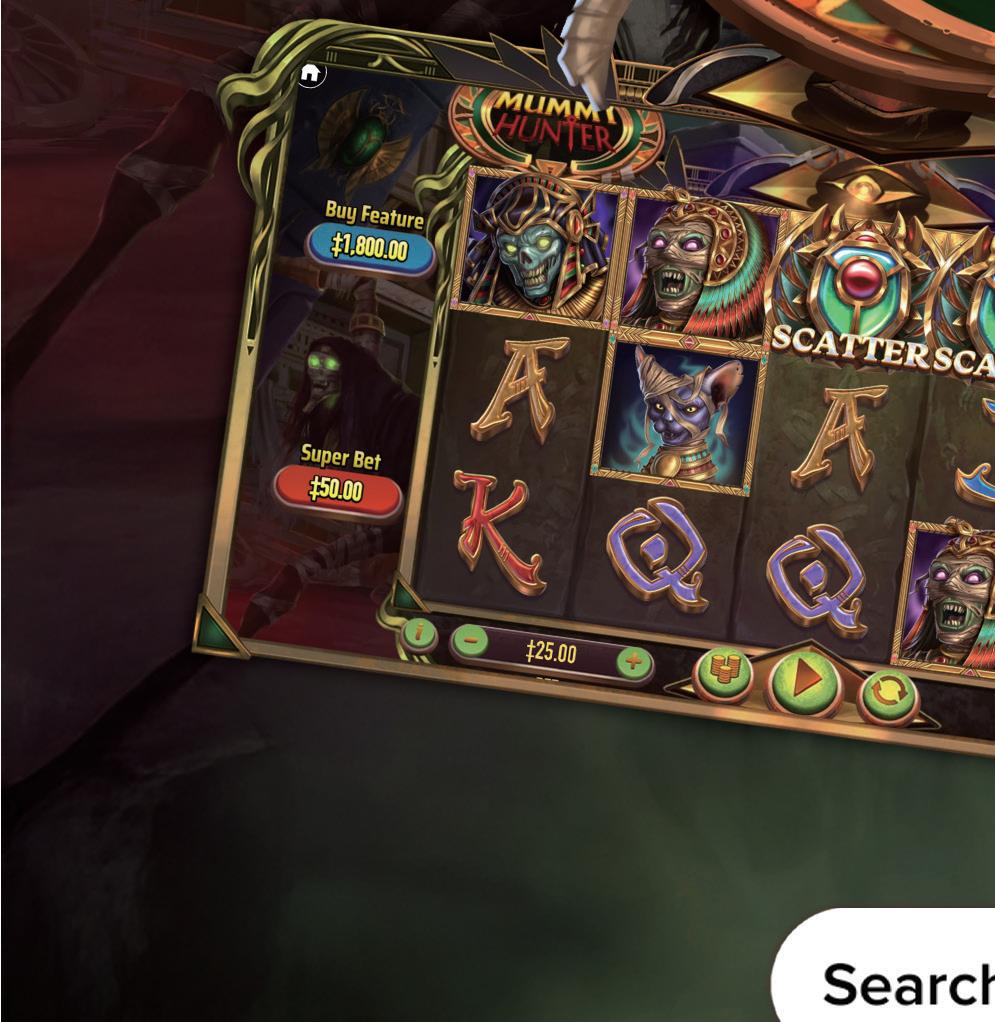
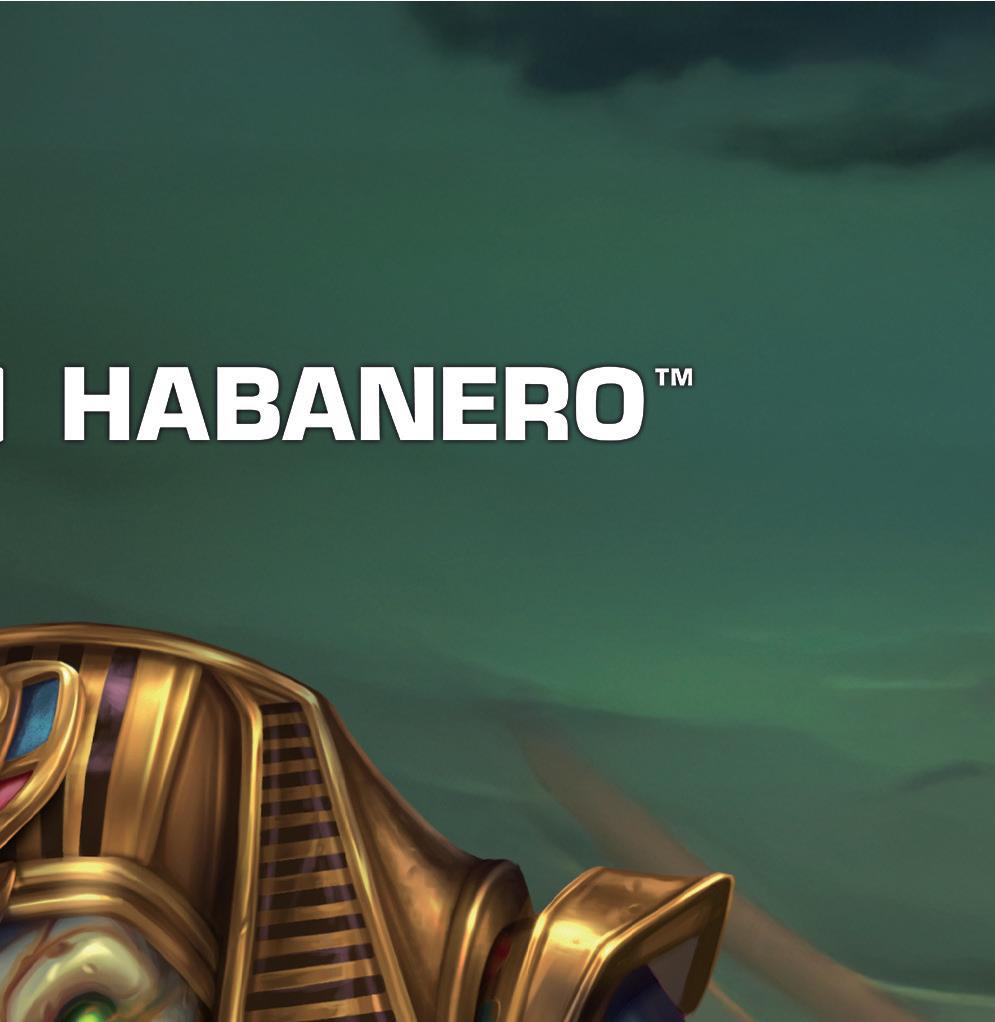























Data.Bet’s Head of Product, Rostyslav Likhtin, speaks to Gambling Insider about the proliferation of esports in LatAm and how operators can catch the crest of the wave amid favourable conditions
How would you describe the current state of the sports and esports betting market in LatAm?
Both the Latin American sports and esports betting markets are in dynamic growth phases, underpinned by strong long-term potential and increasingly favourable conditions. While the region shares some structural similarities with the more mature European market, LatAm remains at an earlier stage of development, making it a compelling opportunity for forward-thinking operators.
Several macro trends are driving this evolution. For example, as the mobile infrastructure develops, expanding 4G coverage and broader internet availability, especially in urban regions, are changing digital access. Adopting diverse payment options, such as digital wallets and localised fintech solutions, supports the accessibility of online betting services.
Demographics are a key factor. LatAm has a large, young and digitally connected population that is deeply engaged with traditional sports and online entertainment. Football continues to dominate as a cultural cornerstone across the region, creating a highly receptive audience for sports betting. At the same time, esports is gaining significant traction, particularly among Gen Z users. Titles such as Counter-Strike, League of Legends, Free Fire and Valorant build dedicated fan bases, reinforcing the region’s potential for cross-vertical betting growth.
How does the LatAm betting market differ from other regions in terms of player preferences and behaviour, specifically with regard to sports & esports?
The Latin American betting market is powerfully shaped by deep-rooted cultural values, particularly the importance of local identity, trust and belonging. In sports and esports, user preferences reflect a pattern of loyalty to familiar names: local teams, national leagues and homegrown players consistently drive engagement.
In many LatAm countries, personal networks and community ties are foundational to people’s decisions – from business to entertainment. Trust is often built through relationships, which carry over to betting behaviour. As a result, users tend to engage first and foremost with what they know and trust. In sports, this means betting on national teams or domestic leagues; in esports, it means following local organisations or players with regional ties. Compared to more mature markets like Europe, where audiences are generally more exploratory and open to global content, LatAm bettors are more focused, with a strong emotional connection to “their own.” This makes market entry more challenging for foreign brands – unless they localise effectively or form visible partnerships with trusted regional entities.
The impact of local presence is evident
in esports. A relevant example is the Six Invitational 2024 in Brazil, where engagement surged dramatically when Brazilian teams performed. As noted by industry experts, what began as a standard tournament quickly became a major media event. As soon as local teams advanced, it stopped being “just another tournament” and became a mainstream media event, drawing in casual viewers, families and press coverage. In essence, player behaviour in LatAm is driven not just by the quality of the content or odds, but by cultural proximity and emotional relevance. Understanding this is crucial for building meaningful and lasting user engagement in the region.
What factors are most important in delivering a seamless betting experience for LatAm users, and how can operators optimise their projects to better engage users in both sports and esports betting?
A seamless betting experience in LatAm begins with genuinely localised design – not just translated text, but complete alignment with regional behaviours, expectations and technical realities. This includes culturally intuitive onboarding, mobile-first UX and features that reflect local betting patterns, such as flexible stake sizes or regional market types.
Equally important is customer support,
which must be fast, accessible and in the local language. In a region where trust is built through personal connection, professional, responsive support is more than a service – it’s part of the user experience. Automation and 24/7 chat in Spanish and Portuguese become essential as platforms scale.
To ensure long-term engagement, operators must develop region-specific UX strategies that support users at different digital literacy levels. Seamless mobile navigation, low-friction registration and smart content delivery –including personalised market suggestions –help reduce misunderstandings and encourage habitual use.
What should a sports betting project from Europe consider before entering the LatAm market?
Entering the Latin American sports betting market requires a strategic, adaptable and longterm approach, rooted in local understanding and a commitment to building a real presence. First and foremost, European operators must recognise that LatAm is not a test market – it’s a complex and high-potential region that rewards consistency and cultural alignment. Success depends on early investment, both in time and resources. This includes the region’s diversity, the cultural drivers behind user behaviour, local economic conditions and the existing competition structure. Market research should go beyond surface-level insights and help operators identify where their value proposition aligns with regional needs, and where adaptation is required.
Another critical factor is the formation of strong local partnerships. Whether with payment providers, media networks or regional content suppliers, these relationships provide more than operational value – they offer legitimacy and trust, which are vital for engaging users in markets where local identity is a key influencer of consumer behaviour.
Finally, operators must approach commercial discussions with clarity, flexibility and transparency. Clear revenue-sharing models, realistic technical support expectations and a product roadmap that reflects regional priorities are essential for maintaining trust with partners and clients. Competitive positioning is not just about product quality, but about demonstrating a genuine commitment to understanding and serving the LatAm market.
How do you think player demographics and behaviour will evolve in the coming years?
In the coming years, the player demographic in Latin America is expected to diversify significantly in terms of age and behavioural profiles. While younger, digitally native users continue to drive progress in product expectations, the broader opportunity lies in
the widening accessibility of betting across economic segments.
Improved mobile infrastructure, growing smartphone adoption and the increasing availability of local payment options enable new user groups, particularly those in non-urban and previously underserved regions, to enter the market. As a result, operators will need to design inclusive, intuitive platforms tailored to users with varying levels of digital experience. Looking ahead, user behaviour will continue to move toward shorter, more frequent and socially integrated betting experiences, especially on mobile.
With sports and esports betting engagement figures so high across the entire LatAm region, what must operators do to stand out among the crowd?
With sports betting engagement reaching impressive levels across Latin America, the challenge for operators is no longer just access – it’s differentiation. To stand out in a competitive landscape, operators must go beyond basic offerings and focus on delivering high-impact, localised and experience-driven solutions that reflect regional behaviour and evolving digital expectations.
A key opportunity lies in the strategic blending of sports and esports. Rather than isolating esports as a niche product, leading operators are integrating it as a core extension of the betting experience. In a market where Gen Z and
digitally native users are increasingly dominant, creating betting environments that reflect interactivity and entertainment-first design is essential. To further differentiate, operators must offer flexible betting options such as microbetting, player-centric markets that allow users to engage more frequently and meaningfully. These mechanics are particularly appealing in LatAm, where casual, mobiledriven usage is rising and attention spans across multiple digital platforms. Equally important is a localised content strategy. LatAm audiences respond strongly to regional identity and storytelling through local team representation, culturally relevant broadcasts or influencer engagement. Platforms that build partnerships with local media, athletes or content creators are far more likely to foster long-term brand loyalty than those relying on generic global campaigns. Another differentiator is around payments. Seamless integration of local payment ecosystems – including fintech wallets and regional processors – is critical in reducing friction and expanding access, especially to underbanked users active in digital commerce but underserved by traditional banking. Ultimately, operators that stand out in LatAm will be those who move fastest to build culturally intelligent, technically agile and emotionally engaging ecosystems – platforms that don’t just facilitate betting, but embed themselves in their users’ broader digital and social lives.

New financial vulnerability checks and financial risk assessment plans were released in the UK last year. How did the industry react?
As with any new regulation, there’s always a divided opinion. The original proposal was one a lot of operators very much supported the principles of; helping to reduce customer harm, reduce problem gambling. But it did raise concerns around real-time management checks, some of the GDPR elements, how those checks would be conducted, and any potential feeling of the checks being invasive towards consumers as well. In terms of what the regulator did to support that and respond to some of those challenges, there was a phased implementation. We saw the original checks come in August last year, a £500 ($664.30) threshold, and then that reduced to a lower threshold in February this year, enabling businesses to have some time to put the right processes in place.
Have expectations been met?
There was a feeling that there could be a decline in revenue across the market due to restrictions on players. Obviously, if people were hitting the thresholds and not meeting the requirements, there could potentially be a pause on player activity. Compliance costs, of course, would increase. New requirements on the operators to undertake new responsibilities always come with a cost. For some of the smaller operators, that was a major concern.
I think one of the biggest challenges is black

market or unregulated growth, people being pushed to those markets because they weren’t conducting similar checks. From what we’ve seen, revenue stability across the market doesn’t seem to have been too impacted. Compliance costs have increased but that’s to be expected when a new service or regulation is implemented.
Which aspects of the new regulation have caused the greatest challenges?
GDPR was one of the key elements of making sure they were aligning data privacy and consumer privacy to the new regulations. There was some concern around how the checks should be conducted initially, how consent would be gained or if consent would even be required. Obviously, we’ve had clarity from the Gambling Commission around how that should be done, which is fantastic. That’s given operators the clarity they needed to move forward and ensure explicit consent is gained as part of the financial check. Real-time data syncing has been one of the key things, especially as the value threshold has decreased while the checks required by operators has increased. From some of the conversations we’ve had, there were a number of operators who were enabling the £500 threshold check service in a manual way. But, of course, with that reducing, the volume of checks has increased quite substantially. So, having that increase in volume means, realistically, manual capabilities are pretty untenable for operators, and so the move to automation and real-time data strategy is a big change. That of course comes with implementations and integrations of APIs, making it more challenging to get these services up and running for operators. LexisNexis Risk Solutions can definitely assist with that.
Given your black-market concerns, compared to other European nations, how stringent are these new regulations? I’d say the regulations are pretty stringent in comparison. It depends how you interact with it, I suppose. The threshold of £150 is pretty low in comparison to some of the other nations out there. The point in time that the checks need to be done is as soon as that threshold is met.
What are some common missteps operators make when striking a balance between regulation and the customer experience? Not getting the checks done at the right point in time is a key problem. Also, having a misunderstanding of the requirements of the
regulation – in any kind of market, not just in the gambling space. There were some instances where operators had triggered checks at the lower threshold or had been conducting so many checks that it caused a lag, which is going to impact players moving forward and continuing to play. Ultimately, from an operator’s perspective, their core goal is to protect the consumers, but of course they want players to keep playing as well. Any kind of pause in playing that’s unnecessary or unrequired can drive players to different operators. There’s that balance to keep, ensuring they’re doing the right things by the regulation and the right things for the consumer, but also the right things by their own business.
In the long run, how will these new regulations affect the UK?
Some of the things we’ve touched on around the cost of compliance could be a key factor in the future. What we may see there is market consolidation. That’s not something that would be unique to this market; we see that across all the markets we operate in. As I mentioned before, we work with businesses across the world. Seeing these different regulations come into force across all different markets, we see similar challenges, where regulation impacts the smaller operators in terms of cost of compliance, but also creates opportunities for newer, more forward-thinking organisations.
A real positive is the normalisation of understanding the financial stresses that consumers are under across the market. Again, we’ve seen this in the financial services space for a long time; when we look at people taking out new credit cards and new loans, there’s a requirement to check people’s affordability. It’s a relatively normal expectation that consumers have in that space. Bringing that into gambling is a fantastic thing, because, ultimately, it makes the consumer space safer. People are not getting any kind of feelings of continuation of gambling if they shouldn’t, based on their financial vulnerability.
We get to see things happening in countries before they happen in the next, as the regulation moves around the world and develops nation to nation. We’re able to take our learnings from one organisation to the next, or one country to the next, and really help our clients understand some of the challenges that might come from doing these things. Ultimately, what that ends up in is a fantastic experience for the consumer, and that’s the key thing in all of this – protecting consumers, but also making sure they have a fantastic experience.

Industry experts provide Gambling Insider with their insights into gamification, including Soft2Bet, Gamanza, EveryMatrix and Optimove












YOEL ZUCKERBERG CPO Soft2Bet
Yoel Zuckerberg is Chief Product Officer at Soft2Bet and brings more than 20 years of industry experience to the role. His career spans across European and US markets in both B2C and B2B sectors, with expertise in CRM, operations, SEO, customer acquisition and payments, and strong knowledge of key industry verticals
ANDRÉS BLANCO Managing Director Gamanza Engage






Andrés Blanco is the Managing Director of Gamanza Engage, with over two decades of experience in iGaming across B2C and B2B. A former Co-Founder of online casinos and ex-COO at AMGO iGaming, Blanco now leads product innovation at Gamanza, drawing on deep expertise in casino operations, gamification, compliance and regulated markets.














STIAN ENGER PETTERSEN CEO Casino EveryMatrix
MOTTI COLMAN VP Revenue Gaming at Optimove








Stian Enger Pettersen joined the iGaming industry in 2005, and EveryMatrix in 2015 as a Product Manager for the Casino Business Unit. Under his guidance, the Casino division has transformed the player experience by evolving from traditional bonusing solutions to advanced loyalty and gamification solutions.
Motti Colman, VP of Revenue, Gaming at Optimove is a veteran expert in CRM marketing within the online and offline gaming and retail verticals. Colman combines sharp business and finance skills with business and marketing best practices, and previously headed up a High Net-Worth Family Office in London.



















HOW DO









































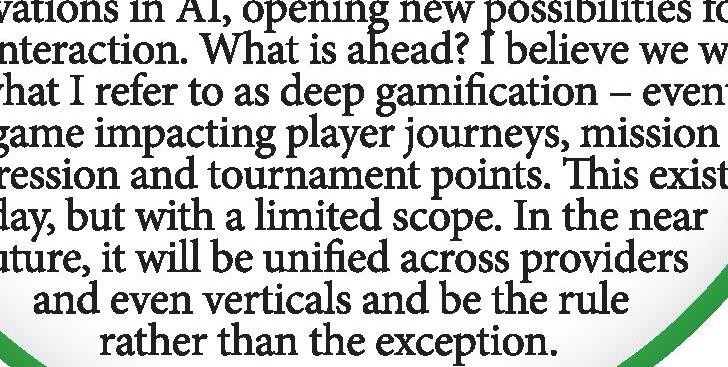





































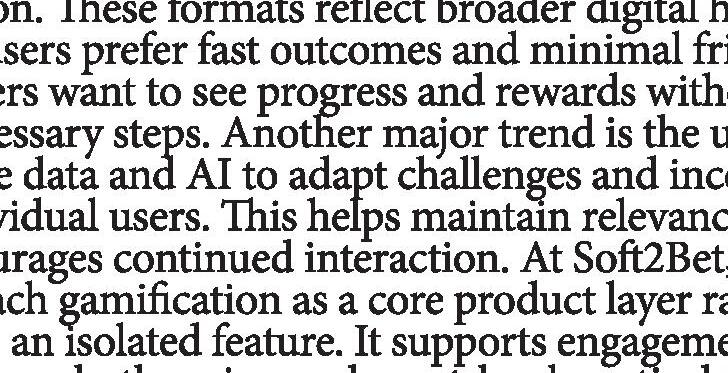




WHAT ARE THE EMERGING TRENDS YOU’VE NOTICED AROUND GAMIFICATION TOOLS














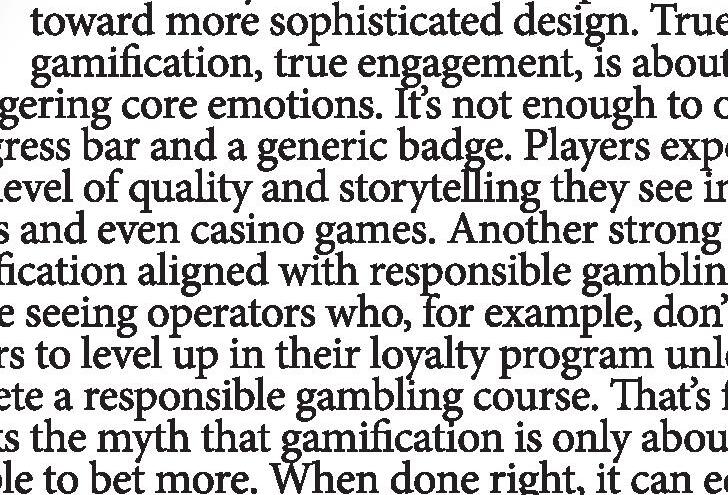
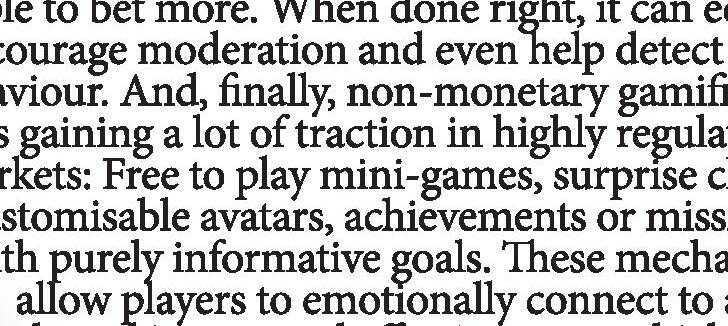

























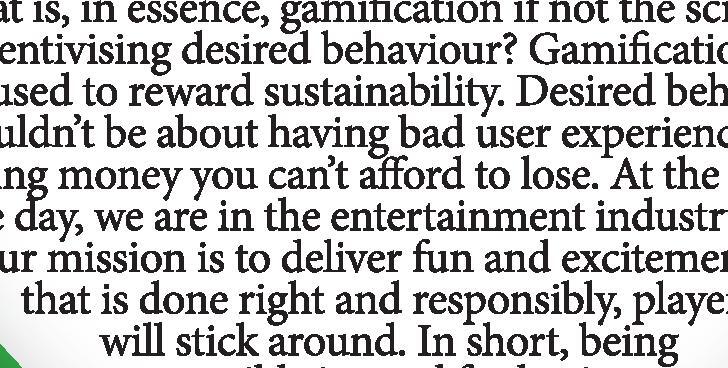













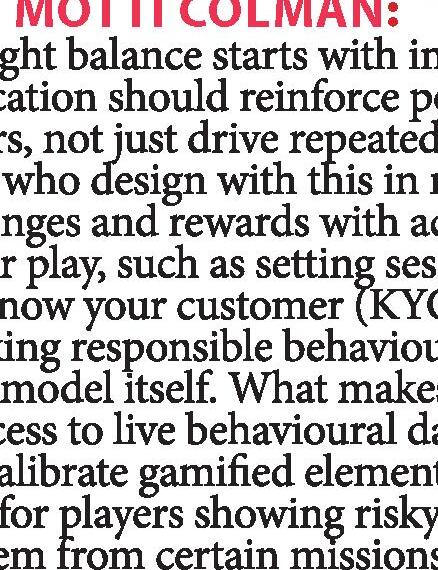




























WHEN GAMIFYING AN EXPERIENCE, HOW DO YOU BALANCE EFFECTIVENESS WITH RESPONSIBLE GAMBLING





























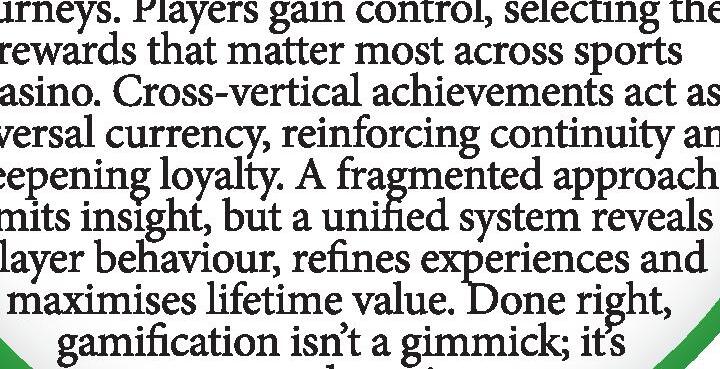








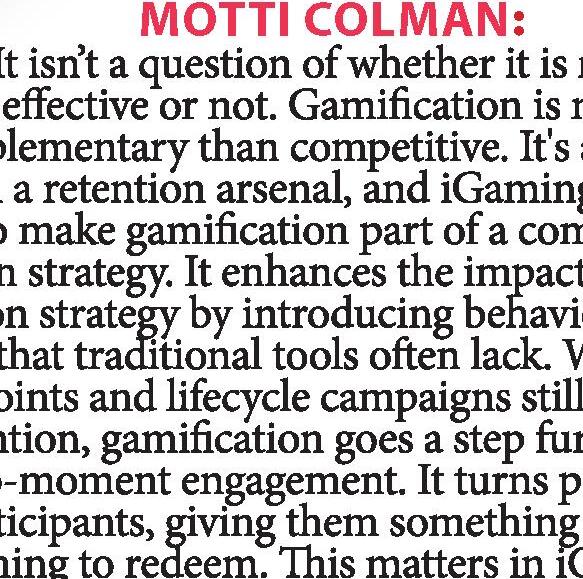





IS GAMIFICATION A MORE EFFECTIVE RETENTION TOOL THAN TRADITIONAL ALTERNATIVES? IF SO, WHY



















In every issue, Gambling Insider commissions guest columns and interviews with people at the heart of the gaming industry – to discover more about the challenges its leaders, pioneers and innovators face. These contributors form The Insiders















































































Gambling Insider speaks to Digitain CSO Ani Mkrtchyan about the importance of localisation, global compliance and plans for the future




We know the social media element of online sports wagering is something that has become very important in the modern industry –but how do you localise this kind of offering when expanding into new markets?
The social media aspect of sports betting has truly evolved into a core engagement tool. We view it not just as a trend but as a strategic pillar in customer retention and acquisition. Additionally, when we expand into new markets, localisation is key. That means aligning the tone, language and even the pace of conversation in our inplatform engagement tools to fit the cultural expectations of that market.
Our Sport Chat feature, for instance, allows operators to create tailored communities.
These aren’t just translations – they’re adapted to reflect local slang, sporting references and even betting culture. We aim to empower our partners with moderation tools, and region-specific settings to ensure they can remain relevant and responsible across diverse markets.
Building on this, are there any compliance-related issues that come hand-in-hand with the Sport Chat offering?
Compliance is always front and centre when introducing a social or community-driven feature. Sport Chat is designed with strict monitoring and filtering systems to prevent the sharing of sensitive or prohibited content – including unlicensed tip-sharing or inappropriate language.
Furthermore, when launching in new jurisdictions, we conduct legal reviews to ensure we’re fully aligned with local regulatory frameworks. This proactive approach helps our operator partners launch confidently, knowing that we’ve already mitigated many of the potential compliance risks on their behalf.
More broadly, what kind of compliance challenges do you think are unique to expansion in the EU market, and have these challenges helped inform your LatAm expansion strategies in any way?
The EU market is undoubtedly one of the most complex in terms of compliance, primarily due to its fragmented regulatory landscape. Each country imposes its distinct requirements related to player protection, data privacy, responsible gaming, marketing standards and taxation. Navigating these differences has pushed us to build a more agile and modular platform that can be tailored to each jurisdiction without the need for fundamental redevelopment.
Having now successfully completed licensing processes in several competitive European markets, including Malta, Sweden, Romania and the UK – we are experienced and have over time strengthened our compliance framework.
As for LatAm, it is a key pillar of Digitain’s global growth strategy, and we’re focused on deepening our presence across both emerging and established markets. In LatAm, where many countries are still formalising their regulatory environments, we’re applying the same foundational principles; early engagement with legal experts, rigorous internal compliance audits, and strong collaboration with local partners.
When it comes to virtual sports, how do you approach breaking into a market such as LatAm, where traditional sports wagering – particularly on football –has such a stronghold in the market? In Latin America, football is more than just a sport – it’s passion in motion. With that in mind, our goal has never been to replace the live experience, but to complement it with virtual content that feels relevant, responsive, and easy to access. This approach led us to develop Instant Play – a format designed for flexibility and user control. It began with Instant Football, a product that quickly gained traction across the industry, especially in mobile-driven markets like LatAm where always-on engagement is key.
Encouraged by its success, we’ve continued to expand our Instant portfolio with titles like Virtual Instant Greyhound Racing, offering the same fast-paced experience tailored to short user sessions and gaps in live content.
Overall, what can you tell us about Digitain’s expansion strategy for the remainder of 2025?
Digitain’s expansion strategy for the remainder of 2025 includes both the onboarding of new strategic partnerships in key geographical markets and the advancement of several partnerships already in development, which are set to launch soon. These initiatives are complemented by region-specific product enhancements, alignment with regulatory frameworks and a continued investment in strengthening local teams.
Gambling Insider speaks to Habanero’s Head of Corporate Communications
Toni Karapetrov about market entry, balancing innovation with compliance and future plans for the supplier
When entering a new geographical market, what are the key aspects for both the operator and regulator that can ensure a frictionless experience with regard to compliance?
Compliance sits at the heart of everything we do. It is not just a box-ticking exercise, but something that builds trust, protects players and ensures our long-term success in regulated environments. Serious suppliers in gambling must take a very thorough approach before entering any market. That means studying the local framework and ensuring full alignment from day one.
A key part of this is obtaining internationally recognised certifications like ISO/IEC 27001, which has certainly helped us streamline approvals in regions where this is either required or strongly encouraged. It demonstrates to regulators that we are serious about data security and operational integrity; and makes recurring audits or licence renewals smoother.
No two markets are the same, so it is essential to also work closely with local partners and authorities to meet unique requirements. This could be adapting game mechanics, bonus rules or localisation needs.
On adjusting to new payment methods like PIX in Brazil, would you say AI-related compliance technologies play a key role?
That is a great question! In markets like Brazil, where payment methods like PIX have become central to everyday transactions, we understand the importance of ensuring
"We see compliance not as a constraint, but as a foundation for sustainable growth"
seamless integration with local platforms. While we are not directly involved in payments, as a supplier, making sure your systems are ready to support these local preferences will definitely go a long way in delivering a smooth and efficient experiences for players.
As for AI, it is an area everyone in the industry is watching closely. While it is clear AI can play a role in improving efficiency, particularly around compliance and fraud detection, we still believe that human expertise and local insight remain key in understanding and adapting to rapidly changing market conditions.
How does Habanero balance the challenge of ensuring compliance across ever-changing globally regulated markets while ensuring localised innovation in iGaming products?
We see compliance not as a constraint, but as a foundation for sustainable growth. Operating in over 20 regulated markets, we understand that each territory brings its own set of rules, expectations and player preferences. That is why we start every game with a solid compliance-first framework, ensuring alignment with requirements on RTP, bonus structures, feature triggers and responsible gaming practices. From there, we localise by incorporating culturally relevant themes, fine-tuning volatility and timing launches to resonate with local events, we ensure that each product feels tailor-made for its audience.
Generally, how many – if any –general policies can be applied to every market with regard to compliance?
Broadly, principles like fairness, integrity and player protection are embedded into everything compliance across the globe. These core standards should guide any company’s approach and form the foundation for how suppliers build, certify and deliver their games.
Of course, every market brings its own unique challenges, whether in technical requirements, compliance processes, or


promotional expectations. While the overarching framework stays consistent, implementation should always be adapted to fit local demands. That is why internal alignment is so important.
On the topic of entering new markets, what can you tell us about Habanero’s plans in this regard for the next 12 months?
We are excited about what is next for Habanero as we continue to expand globally. In Europe, we have recently secured licences in Greece and Denmark, and we are actively exploring further opportunities across the region as regulatory frameworks evolve.
In Latin America, we have made successful launches in Colombia, Argentina, Brazil and, most recently, Peru. These markets have provided valuable insights and strong performance and we continue to work closely with operators to fine-tune content and deepen our presence. We are also keeping a close eye on developments in other high-potential regions, including Mexico. Looking forward, we are preparing for further expansion into new global markets, including jurisdictions where regulatory clarity is developing. As always, our focus is on sustainable, local-first growth, ensuring we deliver tailored experiences that resonate with players everywhere.
Gambling Insider sits down with Sarah Gardner, Deputy CEO of the Gambling Commission in the UK, to discuss player anonymity, affordability checks, user experience and more...







The desire for player anonymity is a key black-market driver, what kind of regulatory initiatives are you looking to introduce with regard to ensuring anonymous betting?
Anonymity in gambling is a difficult topic because we think it’s really important for operators to know their customers, to put the right protections in place and to make sure each customer is not doing something they shouldn’t be – such as money laundering, for example. Clearly, with the proliferation of gambling online, players don’t have access to anonymity because they have to create an
account o play and – in short – reveal their identity. Naturally, this has sparked a lot of challenges in the UK market as players will then turn to the unlicensed space. However, this is why we have now introduced requirements for operators to interact with customers to make sure they know them. They can then understand what their play is like and what their habits are, to be able to put in place any protections they might need. This, again, links back to a wider initiative of trying to encourage customers to get to know their players better – to ensure they are protected.
Regarding the key point of affordability checks, is there an industry sector – such as payments – you think could help inform the Commission’s goal of building a frictionless affordability check experience?
Almost certainly, yes. That is also why we’re working really closely with various people who are actually in the financial services context, including both operational participants within the financial services industry and the Financial Conduct Authority, so that we can learn from them about what works and what and what doesn’t. This is because, at the end of the day, what we’re trying to do is introduce measures that are both targeted and well-informed to protect those who need help.
Of course, we’re also trying to make sure these initiatives don’t interrupt the player experience for people who are gambling happily and without the need for enhanced protections.
“We want to make sure operators are being fair and open with their players, and explaining the offer that’s presented”
Do you think there is a trend of regulators becoming more concerned with user experience in the modern industry and, if so, can you tell us why?
Yes, I would say we are certainly interested in user experience. From a regulatory perspective, I can tell you that this specific interest would be centred around things like operator transparency and openness with the consumer. Essentially, we want to make sure the consumer knows what they’re getting into – so to speak. We want to make sure operators are being fair and open with their players, and explaining the offer that’s presented. Precisely what we’re trying to avoid is hidden terms and conditions, unspecified caveats or sign-up fees. Alongside that, we also want to make sure the platforms in our market have tools to enable players to manage their gambling –giving them the ability to set limits, the ability to take time out and ensure an experience that can remain responsible above all else.
With the UK General Election betting scandal nearing its conclusion, it sparks an interesting parallel with the rise of prediction market election betting on the US Presidential Election. Do you see a world where the US prediction market operators could enter the UK?
Interestingly, prediction markets already exist in the UK. Of course, they don’t seem to be catching fire in the same way that they have in the US, but they are certainly interacted with enough to remain operationally self-sufficient. With our complete focus obviously being centred around the UK mark quite up to date enough with the latest developments in this area of the US landscape to comment definitively. However, put simply – betting is and always has been all about making predictions. Because of this fact alone, I would suspect prediction markets won’t be going anywhere anytime soon.
Gambling Insider speaks with Gerasim Khachatryan , Head of Live Gaming and Virtual Sports at SportGenerate, about the role of esports within the changing face of the modern betting landscape
For SportGenerate, how would you define the challenge of creating a memorable online sports gaming experience in the modern market?
The main challenge today is ensuring your offerings stand out in a highly competitive space. Players expect more than just access to odds – they want smooth performance, engaging content and something that feels unique. Therefore, tackling this challenge demands focus on delivering reliable, highquality products across traditional sports, live games or esports. Experiences that are fast, flexible and tailored to each partner’s needs are key in today’s market.
Your offerings encompass a number of sports. Have you seen a rise in popularity for any particular sport or esport in the last year?
Absolutely. Esports in general has experienced remarkable growth over the past year and has also now become a key focus for SportGenerate. This growth reflects a global trend, as esports betting increasingly attracts a younger, techsavvy audience seeking engaging and dynamic experiences. At the same time, we’ve seen a sharp rise in engagement with our live table tennis product – highlighting demand for a different kind of interactive experience.
This has not only driven consistent wagering volumes but also significantly increased session times and player retention. The authenticity and fast-paced nature of table tennis as a sport makes it an ideal fit for modern betting audiences looking for reliable, always-on content. Together, these two verticals –esports and live sports – have become key pillars in our offering and within the wider modern sports betting landscape.
How has the rise of personalisation and AI technology helped improve your esports offerings?
AI and personalisation have become essential to refining how we deliver our esports content. With fully managed API and integration of official data, suppliers in the industry are now able to tailor content and layouts that better match user behaviour and preferences. This helps operators drive engagement, while
ensuring users get intuitive, real-time and dynamic betting experiences. AI also supports smarter risk management and odds setting, providing a fair and competitive environment. Overall, we feel these technologies make the betting experience more intuitive, dynamic and player centric.
What were your key takeaways from 2024, which saw a notable rise in esports wagering?
Particularly in the esports vertical, we saw both engagement and revenue rise significantly from our perspective. One of the key milestones was the addition of our in-house WNBA esports offering, which has quickly become a high-performing asset in our portfolio. This, combined with key enhancements across the user experience – such as improved UI/UX, cash-out functionality, enhanced odds and 0% margin availability – has changed the way many suppliers in the industry are now approaching player conversion. Beyond esports, we also observed some changes and forward strides in our live sports segment – again particularly around table tennis. As a sport overall, the highfrequency, professional-level matches we have looked to integrate as part of our table tennis offerings have, we feel, created a new layer of authenticity and trust among our players.
What can we expect to see from SportGenerate in the next 12 months?
Over the next 12 months, SportGenerate is focused on substantial growth across both content and infrastructure. Our game portfolio will hopefully continue to expand with new in-house titles, including additional




























































esports and cyber sports content, with plans to open new studios also in the works. We are also looking to introduce new elements –such as additional market options, improved user interaction and real-time engagement tools – to our overall portfolio.
Microbetting features are also an area we are looking to explore more operationally; however, we’re looking to make some changes to our technological ecosystem with new scout applications, as well as incident feed–based betting markets. Finally, we plan to expand our global footprint with entries into new markets.
"Together, these two verticals – esports and live sports – have become key pillars in our offering and within the wider modern sports betting landscape"
Need to know the latest products on the market in gaming?
Gambling Insider has you covered
PRODUCT REVIEW: INTERBLOCK’S ROULETTE XPLOSION
For years, Interblock has led gaming innovation, pioneering electronic table games (ETGs) that merge traditional table games with advanced technology. ETGs transformed casino floors by offering engaging, tech-driven alternatives to dealer-run tables. Now, Interblock’s Amuse introduces a new category of casino entertainment – blending amusement-style gameplay with RNG wagering to attract a broader audience and create incremental revenue.
Many casual players find traditional table games intimidating, while slots can feel repetitive. Amuse bridges that gap with interactive, visually engaging games that deliver wagering thrills without high-stakes pressure. By expanding gaming boundaries, Amuse diversifies the casino floor – catering to both seasoned players and newcomers, aligning with modern trends and evolving player expectations.
Technology meets tradition
A standout in the Amuse category, Roulette Xplosion reimagines classic roulette through cutting-edge projection mapping. Dynamic projection technology casts high-definition 3D visuals onto the spinning wheel, creating an immersive, visually stunning experience. Players are drawn in by fantastical animations, interactive lighting, and real-time enhancements that make every spin more exciting.
Beyond its breathtaking visuals, Roulette Xplosion boosts excitement and payout potential with the lucky number multiplier, which randomly applies bonus multipliers to selected numbers – intensifying anticipation and win opportunities. Overhead displays showcase real-time game feeds, bet history, and dynamic statistics, adding transparency, strategic insight, and a competitive edge for rookies and veterans alike.
Roulette Xplosion’s social design further distinguishes it. Players can watch the action unfold together, celebrate wins as a group, and immerse themselves in an entertainment-
driven atmosphere. This communal element makes it a showpiece attraction, drawing diverse crowds to the casino floor.
A new vision for casino floors Interblock’s Amuse represents more than individual products – it signals a shift in player
engagement. By integrating striking design, interactive features, and user-friendly gameplay, games like Roulette Xplosion create destination experiences within casinos. These innovations appeal to players who might not engage with standard table games or slots but are drawn to Amuse’s immersive, video game–like appeal.

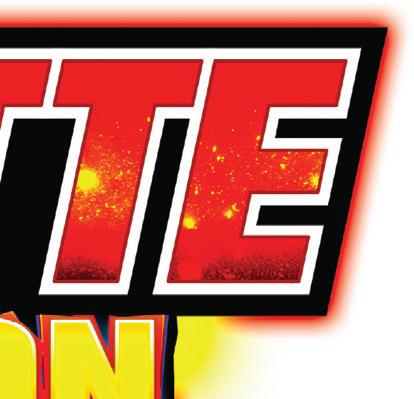


PRODUCT REVIEW: FBM SPIN & WIN 3
Let’s Spin & Win on FBM’s new slot game series!
FBM keeps reinventing its slot offer by launching a new Spin & Win game series in Mexico! Eight games, five features and two jackpots are the highlights of this entertaining pack, ready to add diversity and enthusiastic sessions to the slot collection of any casino floor.
Mystery Gems™, Lucky Neko™, Dragon Festival™, Han’ei Panda™, Dragon Jewels™, Fruity Splash™, Flow of Fortune™, and Filipina Reels™ are the games available on the new Spin & Win game pack. Each theme is an adventure with rich graphics and sounds, charismatic characters, and symbolic creatures, leading players into prosperous gaming journeys.
At the top of FBM Spin & Win’s gaming experiences are the Minor and Grand progressive jackpots. These enticing prizes, shared between the eight games, are randomly triggered and have a high frequency, heading the product line’s rewarding feature set.
But that is not all on what rewarding potential is concerned on the FBM Spin & Win pack. This game series includes a variety of gaming experiences with five game features: Wild Boom, Lucky Bell, Stacked Wild, Triple Wild and Expanding Wild Multiplier.
The spreading, multiplying, expanding and takeover effects of these resources add a singular layer of suspense, adrenaline, and
unpredictability to the game mechanics on each title, ensuring significant player attraction and retention levels among slot fans.
If your players are looking for an adventure, FBM Spin & Win is the perfect option. From ascending the temple of treasures to exploring the lucky rainforest, this product line combines engaging storylines with a pleasant game feeling.
Get ready to Spin & Win with FBM in Mexico by playing eight exciting slot games on Galaxy II, Shadow III, or Auria casino cabinets!

XTENSION LINK EVOLUTION MIGHTY SQUAD BRINGS HEROIC ACTION TO THE REELS
Novomatic’s Xtension Link Evolution made waves at ICE 2025 with its dynamic new titles, and Mighty Squad emerged as a true showstopper. As part of the Xtension Link Progressive Series, this action-packed multiple feature game delivers cinematic gameplay, thrilling features, and a heroic theme that resonates with today’s players.
Mighty Squad invites players into a vibrant universe where a fearless team of heroes takes center stage. Each spin promises high engagement thanks to a trio of powerful feature enhancements tied to the iconic Lock&Spin mechanic. The game begins with 15 individual reels across three rows, but as special symbols land, the field expands up to a maximum of 10 rows — increasing win potential with every row unlocked.
During the Lock&Spin feature, players encounter three mythical enhancers: Griffin Catch, Tiger Rise and Dragon Boost. These enhancements are randomly triggered by their corresponding symbols, creating exciting, fast-paced dynamics that keep the energy high. Adding to the suspense is the Shi Feature, which can turn symbols into Wilds randomly during base gameplay.
Mighty Squad is perfectly tailored for fun

and regular players looking for a featurerich, high-action experience. Presented on the sleek Diamond X 1.55J Quattro cabinet with its signature J-curved screen, immersive LED lighting, and innovative Button on Glass interface, Mighty Squad offers not only
thrilling content but also a premium visual and tactile experience on the casino floor.
With its bold features, modern design, and strong player appeal, Xtension Link Evolution – Mighty Squad is a high-impact title destined to become a powerhouse in the progressive slot segment.
PRODUCT REVIEW: EVOLUTION’S ICE FISHING
Launching this August, Evolution’s Ice Fishing is a fast, Arctic-themed game show full of rapid main game rounds and exciting multipliers. It is another fresh take from Evolution as the company keeps expanding its live casino lineup with new formats aimed at players who enjoy quick, shorter game show rounds.
At the center of Ice Fishing is a 53-segment virtual money wheel. It includes instant win spots, Leaf 1 and Leaf 2 segments, plus three bonus game options: Lil’ Blues, Big Oranges, and Huge Reds. Every spin has a chance to add multipliers of up to 10x to certain spots using Evolution’s licensed RNG technology, keeping players on their toes with every round.
The bonus games are where Ice Fishing lands its biggest catch. If the wheel lands on a bonus segment a player has bet on, they are taken to a lively animated Arctic scene. There, the energetic host pulls a fish out of the ice – each one hiding a multiplier. If the segment already had a multiplier before the spin, it gets added to the fish values, creating a stacked multiplier that can go all the way up to 5,000x.
Ice Fishing is the highlight of Evolution’s roadmap this year. It shows the company’s focus on creating faster, TikTok-style content for today’s players. Alongside Evolution’s commitment to pushing the limits of what live game shows can be, Ice Fishing puts extra emphasis on fast-paced gameplay.
ZITRO HAS UNVEILED THE LATEST UPDATE TO ITS GROWING SLOT GAME PORTFOLIO OFFERING KING FU FROG
King Fu Frog: The king of all frogs!
Hop into a whole new adventure with Zitro’s King Fu Frog! This slot game offers four titles featuring three fan-favourite frogs and a newly added fourth, larger frog, each with a unique gameplay feature. The green frog overflows with multipliers (2x, 3x, 4x), the yellow frog grants three extra spins, and the orange frog unveils a double reel set.
When triggered, the big yellow frog boosts any activated frog(s) features: it expands the reel set to a 5x5 grid if the “double” feature is activated, adds an extra x5 multiplier for the “multiplier” feature, and grants up to four extra spins in the “extra spin” feature.
With up to 26 possible Bonus Link combinations, every spin promises a chance at big wins! Plus, land the special Jackpot symbol in the Bonus Link to claim not only the Mega but the Grand Mega jackpot, taking the adventure to a new level!
The game is packed with fun and surprising moments; wheel multipliers, cheeky easter eggs, and a high-speed pace fans will love. Ice Fishing
is part of Evolution’s bigger goal to close the gap between slots and live games, and it is designed to appeal to a wide range of players.








































































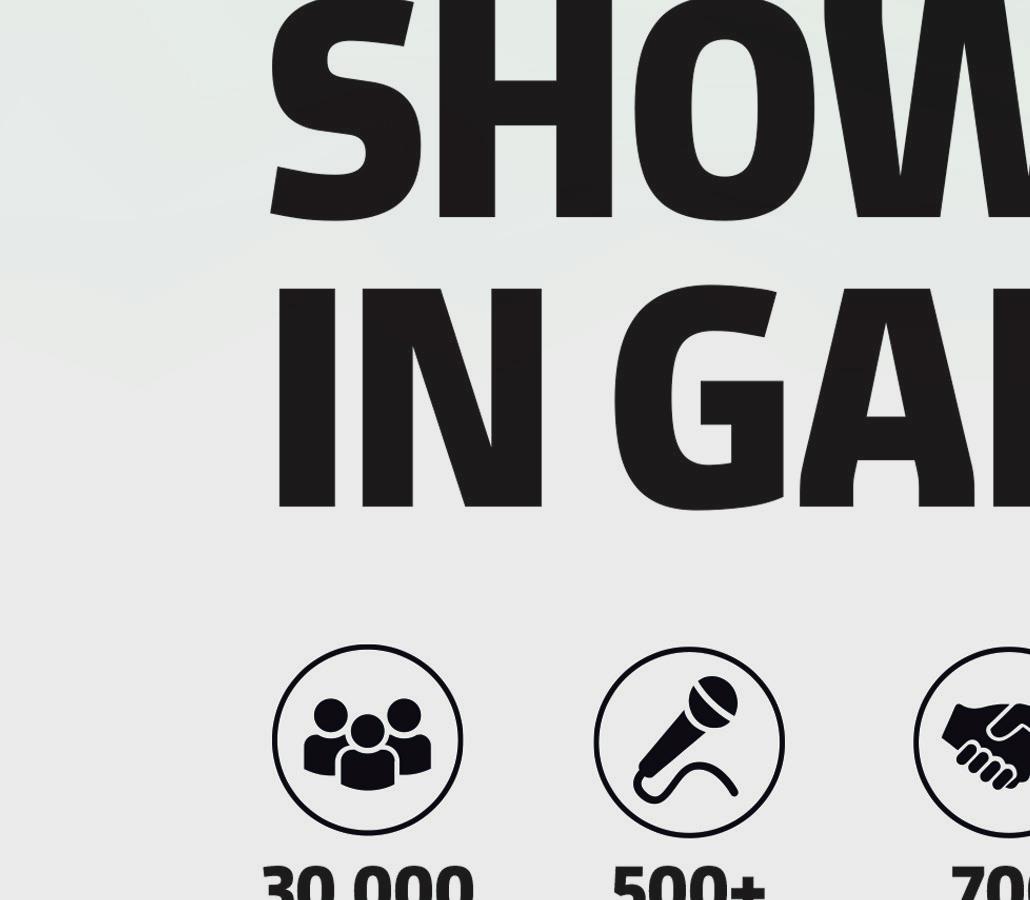




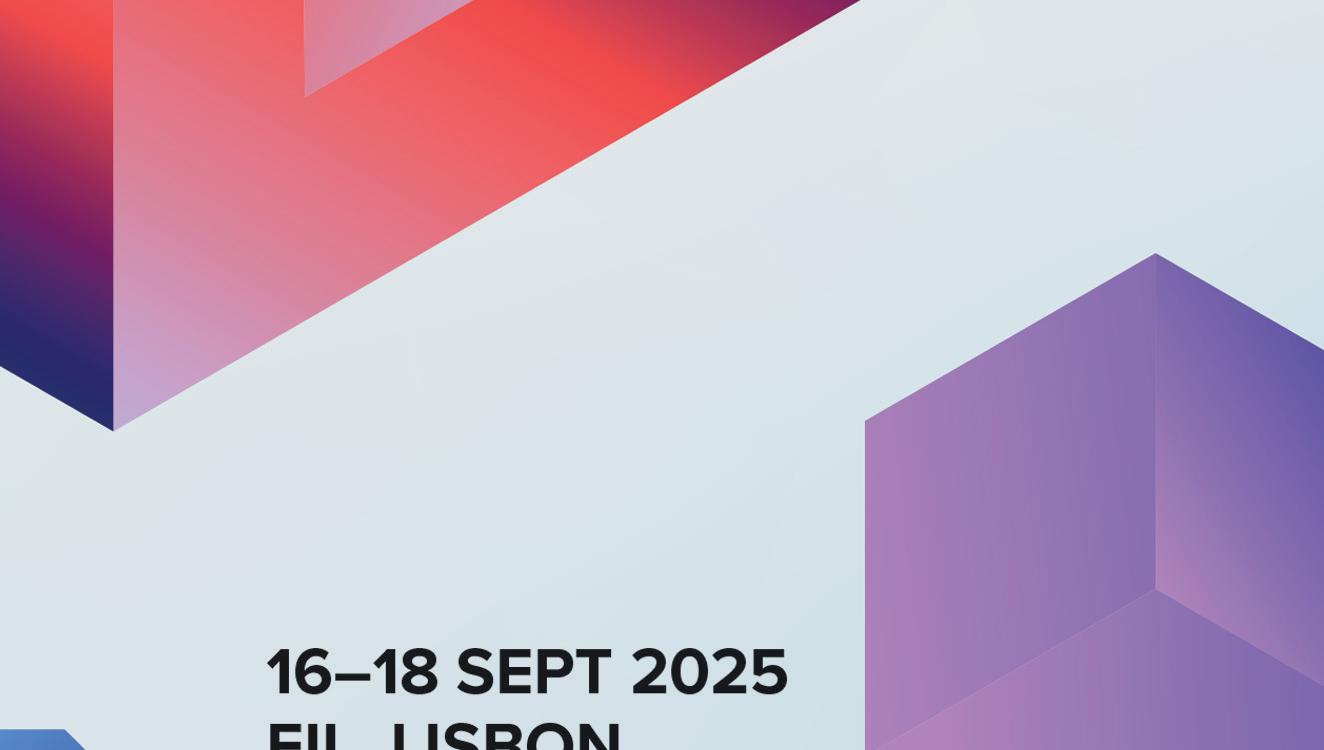















Gambling Insider speaks to Imagine Live Group CEO Martin Martirosyan about key lessons from 2024, future plans, staying agile amid industry shifts and more…
Focusing on your roadmap, what were the key aspects of your 2024 development that informed your approach to expansion in 2025? 2024 was a pivotal year for Imagine Live. Our new studio facility became fully operational, and both our expansion and recruitment efforts moved at an exceptional pace. With our core games already well-established, we turned our attention to two showcase titles, Robin the Fair and Roulette Rouge. These were built specifically for the live genre, with Robin the Fair offering a unique game show experience where players progress through increasingly rewarding rounds – and can cash out at any stage, which really appeals to players who enjoy tactical profit-taking.
Roulette Rouge, meanwhile, combines multipliers and event-based bonus rounds, providing players with engaging opportunities for high returns. These two titles were a direct response to partner feedback and the growing demand for content that fits within the game show category. Looking ahead, our H2 2025 and early 2026 roadmap includes several new titles in the same genre.
How do you think the table game sector, specifically, has been pushed forward by recent advancements in AI and related technologies? One area we are especially proud of is our dealer behaviour AI. In a live studio environment – especially one as active as ours – distractions are inevitable. Our AI continuously monitors a range of presenter






metrics in real-time, including facial expressions, eye direction, voice volume and other behavioural indicators. This system allows us to refine both the training of new recruits and the ongoing performance of experienced staff, raising the consistency and quality of every game presented.
Do you think it will be increasingly important for table game suppliers to optimise for mobile in the coming years – how does Imagine Live plan on capitalising on this industry shift? To be honest, that shift already happened. We remember a time in the early 2000s when mobile represented less than half of user traffic – today, it’s approaching 90%. At Imagine Live, we have always designed for mobile first, adapting to desktop second. That mobile-first philosophy has been core to our development process since day one.
Does fast-changing global regulation breed more opportunities for innovative expansion strategies and campaigns in the modern gaming market? Yes indeed. Fast-changing global regulation



does create more opportunities for innovative strategies and campaigns, but only if suppliers are agile and well-informed. We have grown our back-of-house staff rapidly over the previous years, and critical to the question is our compliance team and their research. Some regulation is counterproductive, a good example being game limits, but most regulation is positive and reasonably uniform. So far, most of the regulation has helped innovation in game design, UX and localisation, allowing agile suppliers to differentiate.
With regard to new launches, what can you tell us about your upcoming plans for this year and beyond?
With pleasure. We will be launching a new wheel-based game – simple, fast-paced and with multipliers to keep players engaged. That will add another strong title to our game show catalogue. In addition, we will roll out a scalable blackjack variant, a new take on baccarat, and a feature allowing players to enjoy blackjack at private tables.
We have also got three more exciting projects in the pipeline – but we will save those announcements for a little later!







